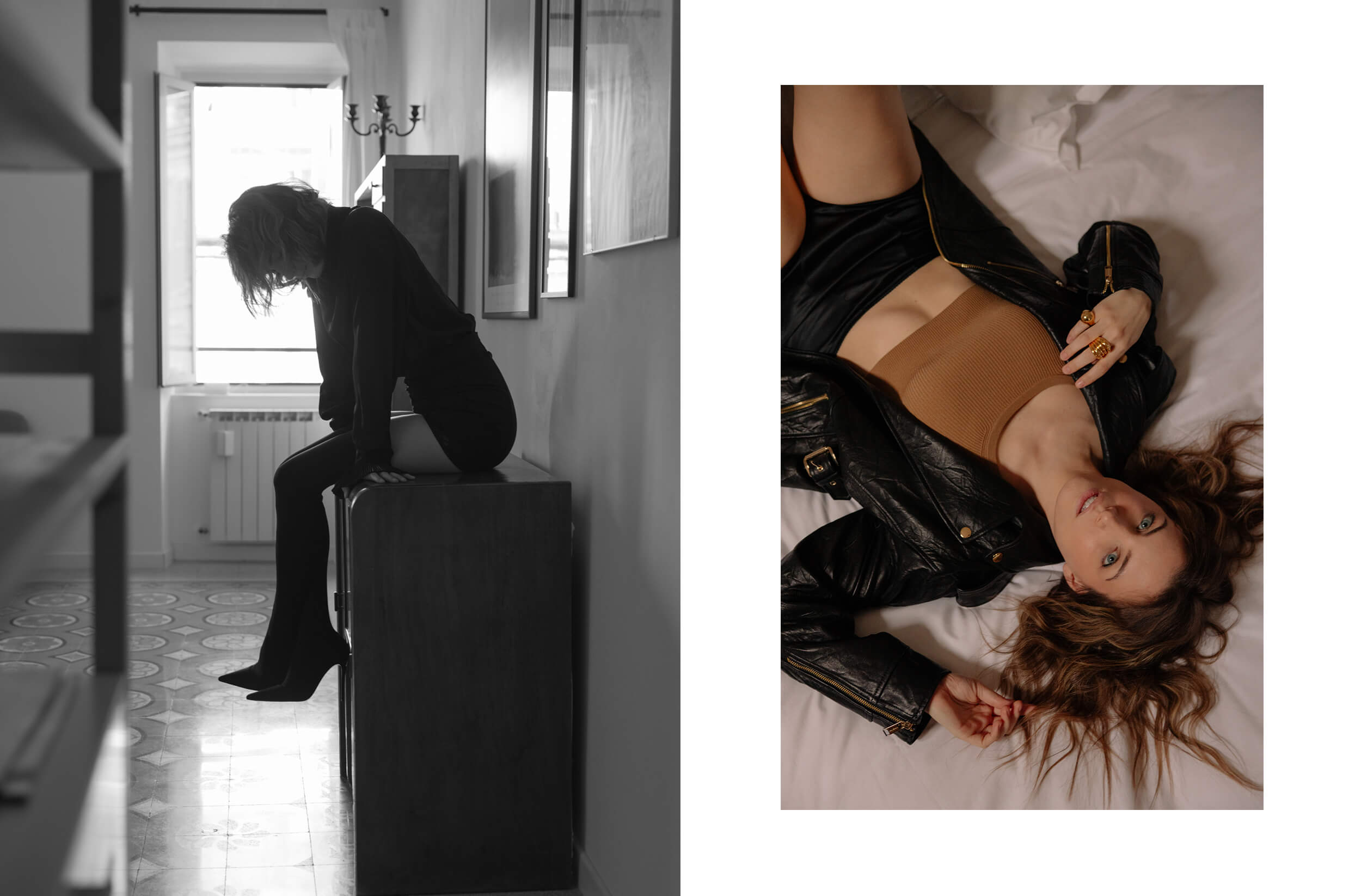Gianna Nannini is an icon of Italian music, a figure who has profoundly shaped the musical landscape with her unique voice and songs full of energy and passion. The film “Sei nell’anima”, currently available on Netflix, directed by her longtime friend Cinzia TH Torrini, retraces the first thirty years of the Italian rocker’s life, from her origins in Siena to her international success.
Playing Gianna, Letizia Toni delivers a performance that captures the essence of the character in all its nuances, successfully conveying everything there is to convey. In other words: the truth and integrity of an icon of our times. With Letizia, we discover the various stages of an incredible journey, which began when a random song choice for an audition marked the start of a deep connection with Gianna’s character.
With Letizia, we talked about the theme of forgiveness, the similarities between Gianna’s life and hers, and the inspiration she found in Gianna’s integrity and passion for everything she does. We discussed music, emotions, great hopes and fears, and how cinema leaves you with unique and indelible lessons.
What is your first memory related to cinema?
My first memory related to cinema dates back to when I was about 13 years old and watched Nuti’s Tuscan films. I always watched them when I came home from school, and thanks to those, I realized I wanted to make movies in life. My dream initially was to be part of Nuti’s films, those written by Veronesi, to make Tuscan cinema! [laughs] I was young, and I didn’t really understand cinema yet, but I memorized those films, like Pieraccioni’s first film “Il ciclone,” or the early films with Benigni.
I loved them so much that I wanted to be part of them.
I read that for the role of Gianna Nannini, you auditioned without knowing which role you were applying for. You sang a Gianna song, though, without knowing anything. A beautiful coincidence. What was your first reaction when you found out you got the part?
My reaction was pure disbelief. Imagine, it was the first time I didn’t wear makeup for an audition: before, I always did auditions super made-up and prepared because I was afraid of not being liked. You know, when you receive many rejections, you never know how to present yourself to get a yes. For that audition, the only thing I knew was the context, “Italian rock-pop song,” and that I had to perform a piece from the film “Closer”. I did that audition just as I am, with tousled hair, but coincidentally, I had a fringe open like Gianna’s when she was 20. I must say I looked quite a bit like her. Then, I thought I could sing something and chose to sing “La differenza” by Gianna Nannini. It was a song I hummed constantly at that time and the only rock-pop song I remembered well.
After five days, they called me from Rome to give me more details about the film and the character, asking me to do a second audition a week later. During that week, I read two books and watched a lot of Gianna’s interviews; I couldn’t sleep at night: the audition was mine, the role had to be mine.
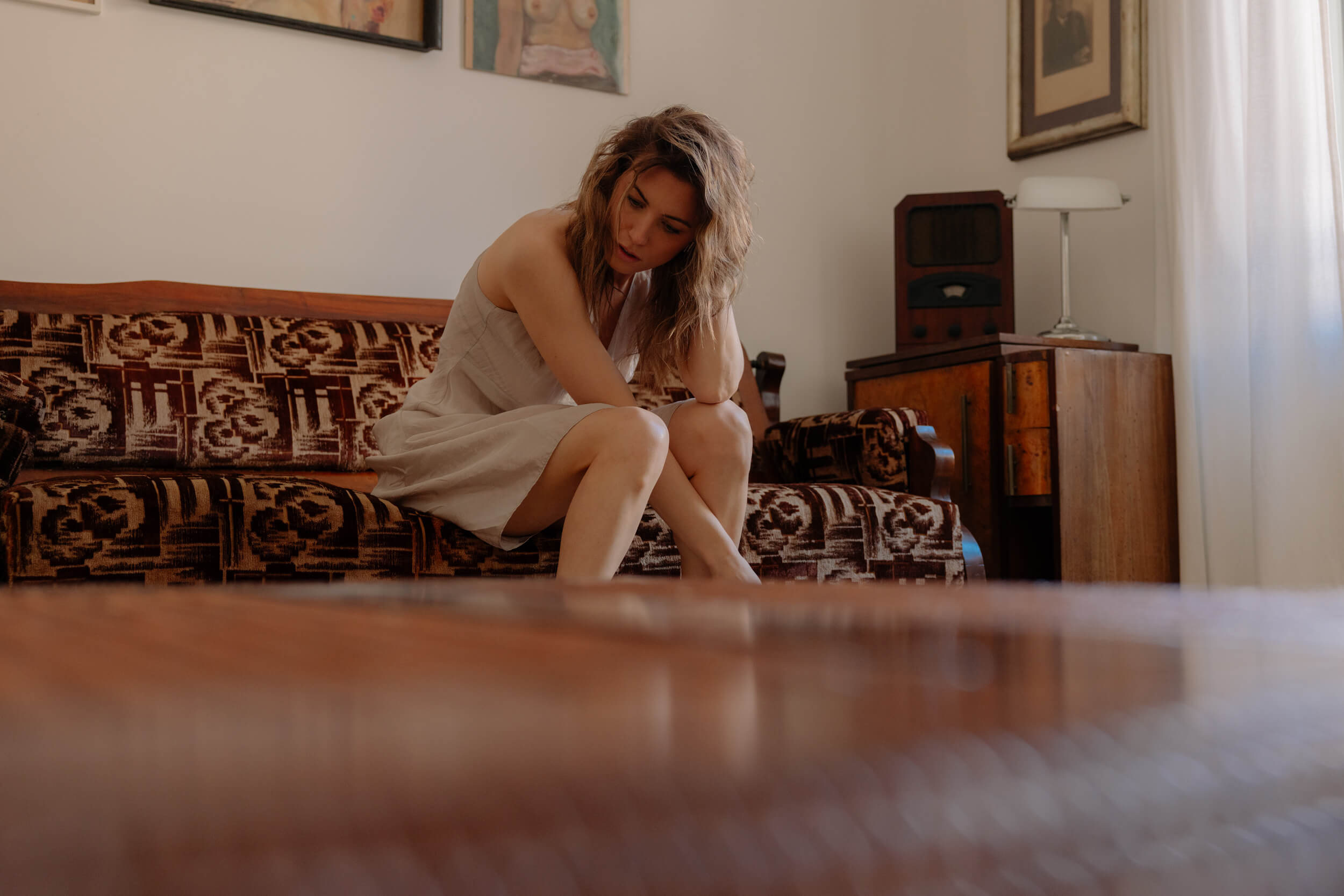
“I did that audition just as I am, with tousled hair, but coincidentally, I had a fringe open like Gianna’s when she was 20.”
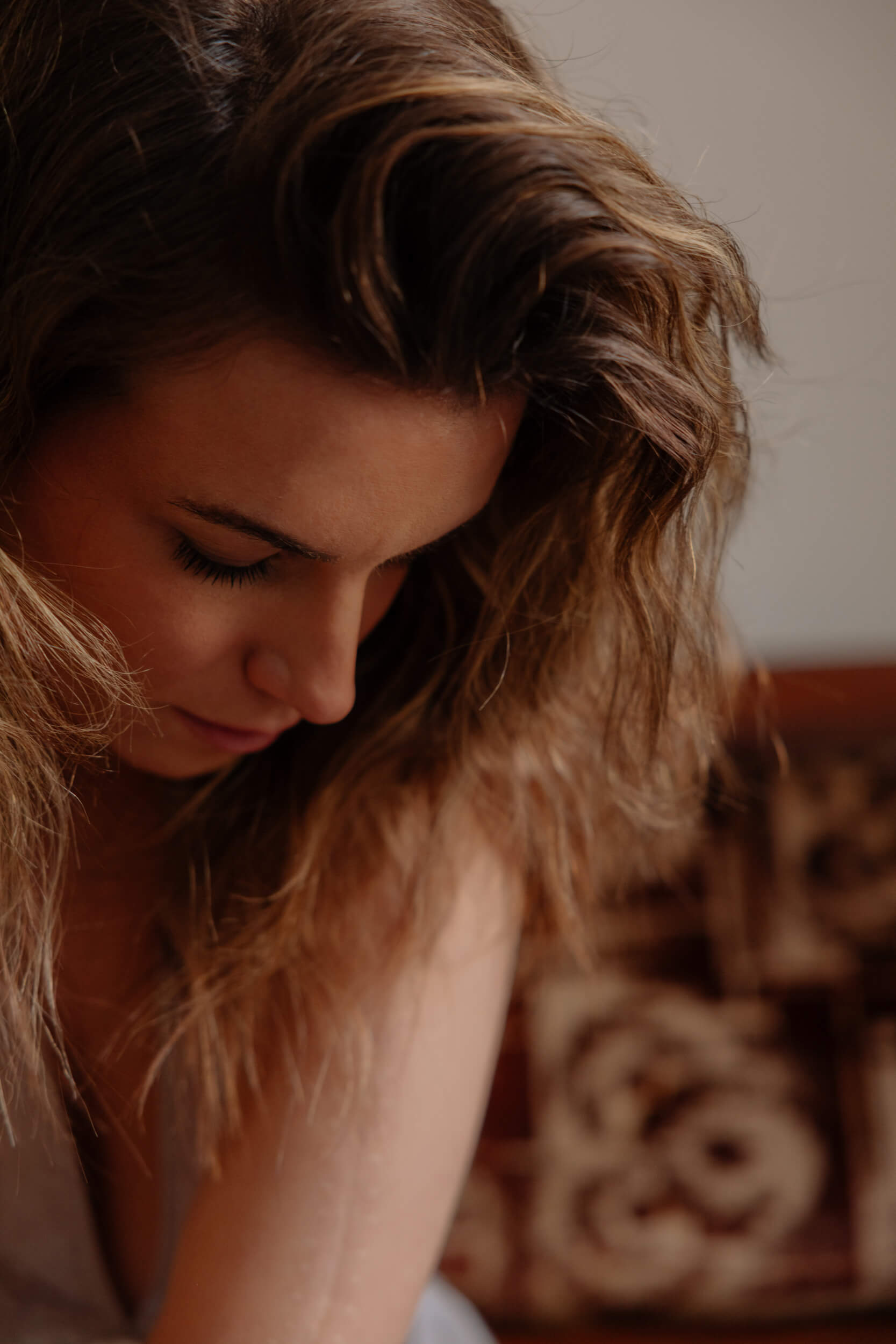
So, you spent a lot of time studying Gianna Nannini’s figure, learning her gestures, voice, and movements. What was the biggest challenge in embodying this music icon?
The biggest challenge was entering a mechanism of truth: not doing a parody, not caricaturing the character, which became an obsession for me. I’ve seen a lot of biopics about real people where I didn’t feel the soul; maybe I perceived the packaging but not the most authentic essence. So, I told myself I had to convey the truth. Between the second and third auditions, I prepared with the help of my acting coach, who was crucial even during the shooting: he was my guide, bringing me back in line when necessary. My strategy was to take a different path, not starting from my physical resemblance to Gianna but from her most intimate and profound side. While studying her autobiography and watching her interviews, I felt the material working inside me, infusing her ways and attitude within me. Then, of course, I also played with the resemblance and the many aspects of her life that coincided with mine. I overlapped our personalities, placing Letizia in Gianna’s settings, spaces, and experiences.
I did deep psychological work, and gradually, the character emerged with her external characteristics: the gestures, posture, hands, the way she holds the microphone, and the energy that comes from it, the temperament, the personality.
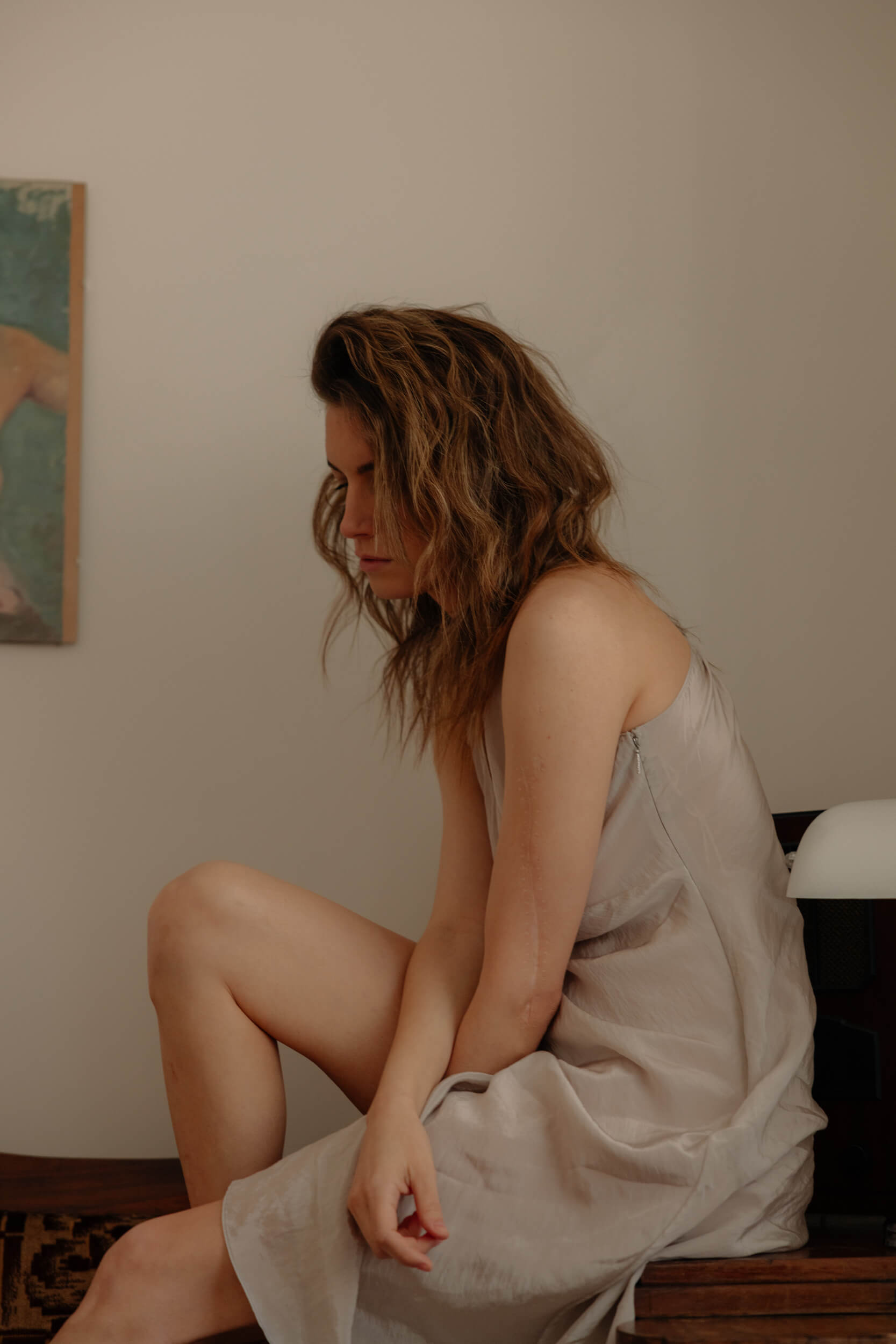
One of the film’s most touching elements is the theme of forgiveness and reconciliation, especially between Gianna and her father. How did you approach representing this emotional journey and character growth?
Throughout the film, Gianna changes a lot. Initially, there’s a very conflictual relationship with her father, which I immediately understood because I lived it with my father for more or less the same reasons. I know well that when you lack recognition from your family, when you feel you are not esteemed by the people you love the most, it feels like a piece of you is missing, something that eats away at you, and annoys you. You react by desiring revenge, thinking, “Now I’ll show you how much I’m worth.” Gianna’s father did not appreciate or understand her work until the ’80s, even being scandalized because he belonged to another generation and couldn’t grasp why Gianna had such a strong need for freedom. Gianna would go to Germany, unafraid to “cross boundaries” in any sense, and this openness clashed with the closed mentality typical of the province, of Siena, like my Pistoia and the reality where my parents grew up. Not being “accepted,” first by the family and then by the system, always conforming to what others wanted, caused a fracture within Gianna: she no longer recognized herself, she went into an identity crisis.
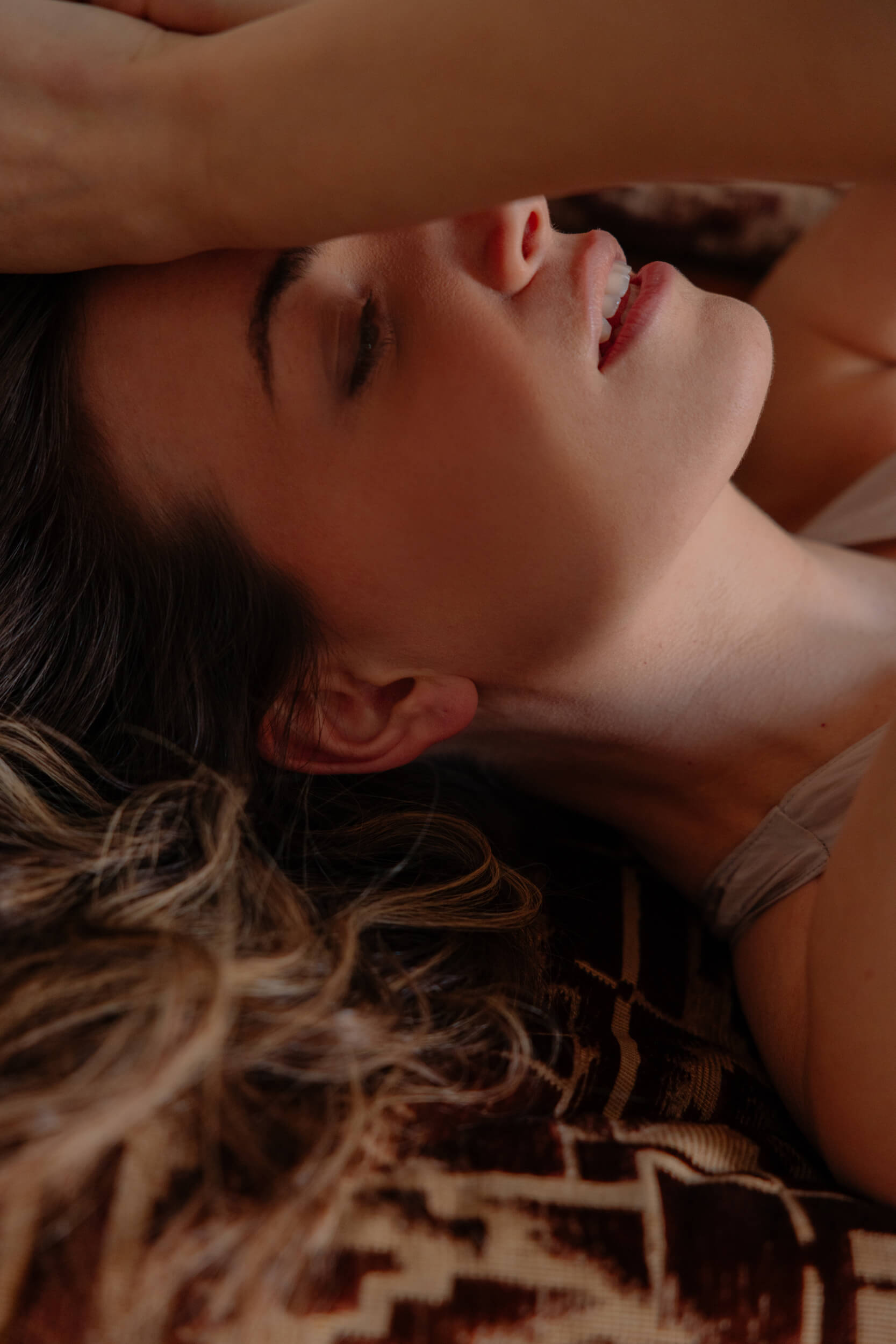
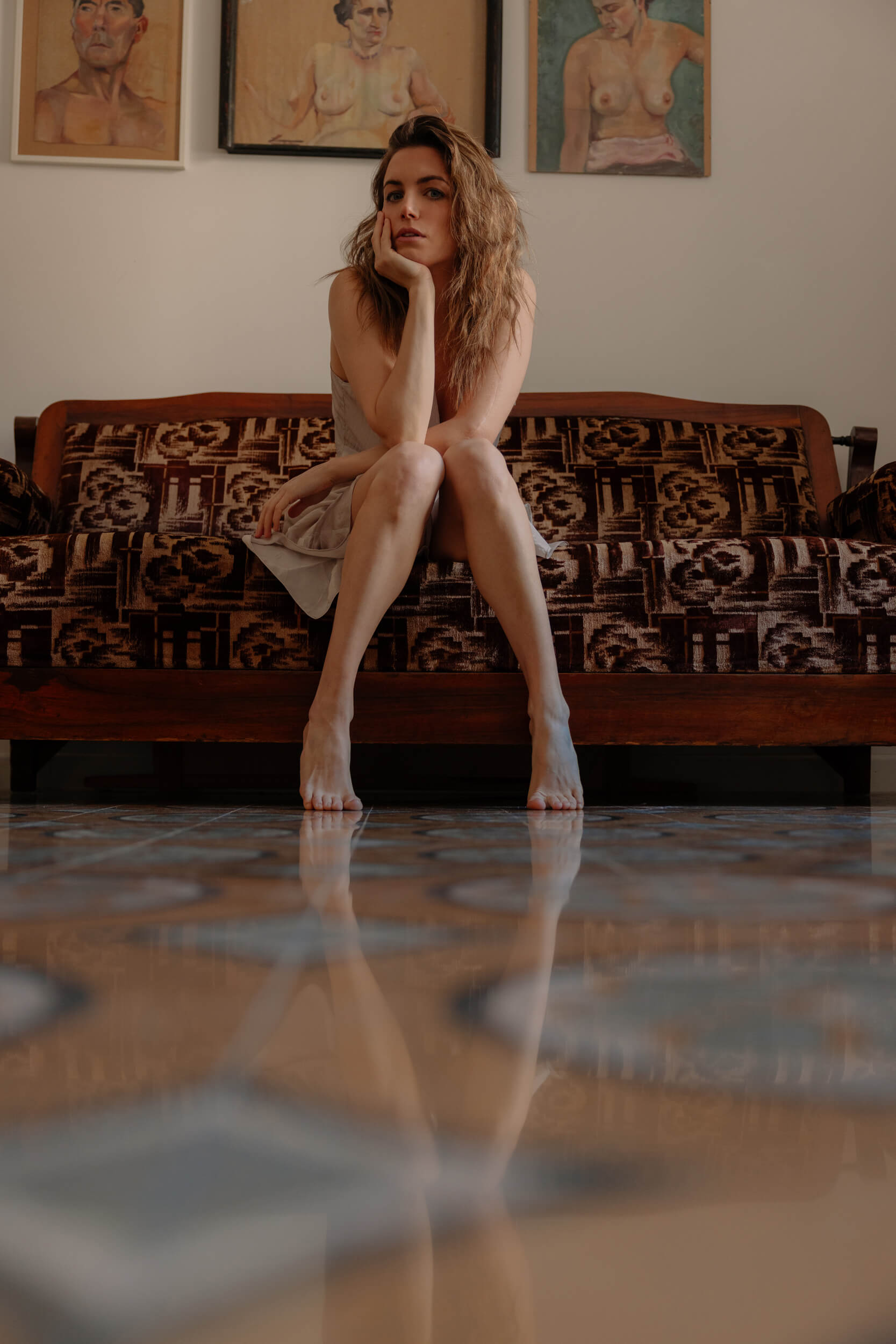
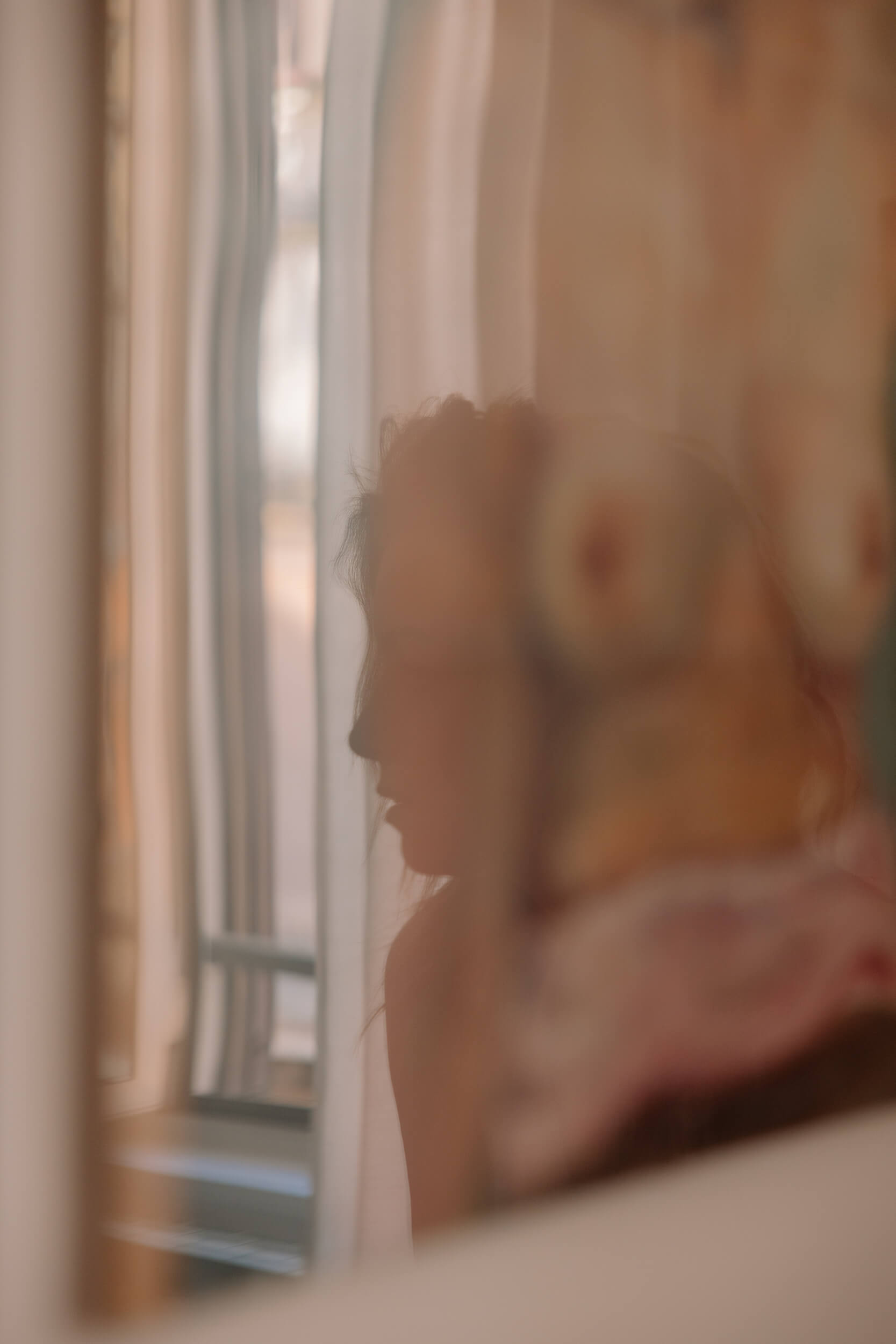
“Now I’ll show you how much I’m worth”
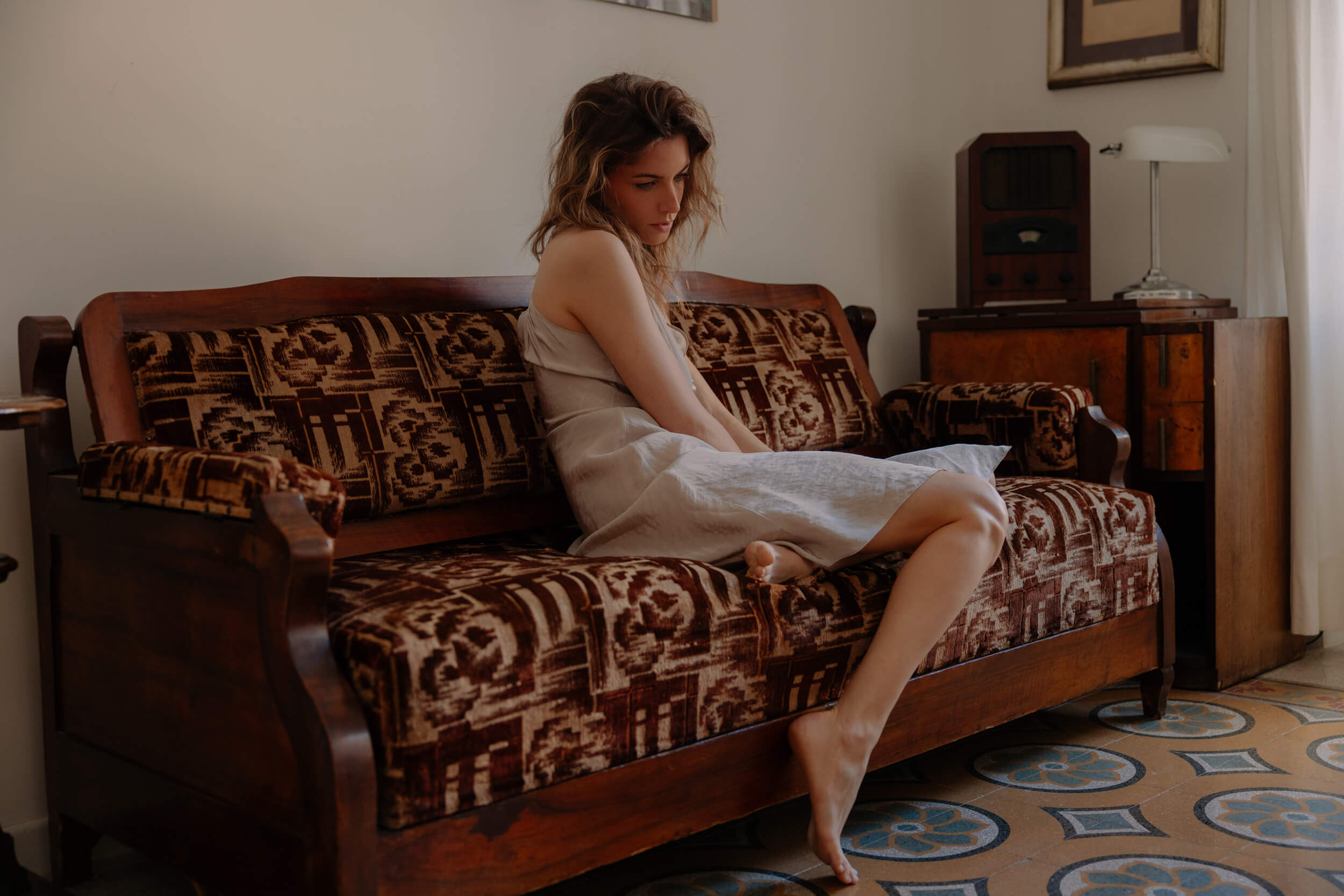
Is this the part of the film where she auditions for Sanremo, right? When the stylists tell her how to dress and do her hair, and the authors say they would write the lyrics for her… and she just snaps.
Exactly, it was unacceptable for her! This, combined with the conflictual relationship with her father, over time, ate away at her, leading to a severe psychological crisis, which I wouldn’t call “madness” because madness is something else. What Gianna suffered from involved other mechanisms; it was a real psychophysical breakdown that could become severe enough to cause hallucinatory episodes. Gianna overcame this crisis thanks to the support of Carla and her mother’s love, saving her. Gianna resumed her musical path, and success followed. From that moment on, she reconnected with herself, helping her impose her identity in the music and recording system forever. At that point, even her father accepted this new reality, unable to deny his daughter’s success.
The final reunion between Gianna and her father is also a reunion of Gianna with herself, her identity, and her roots: in short, with what belongs to her the most.
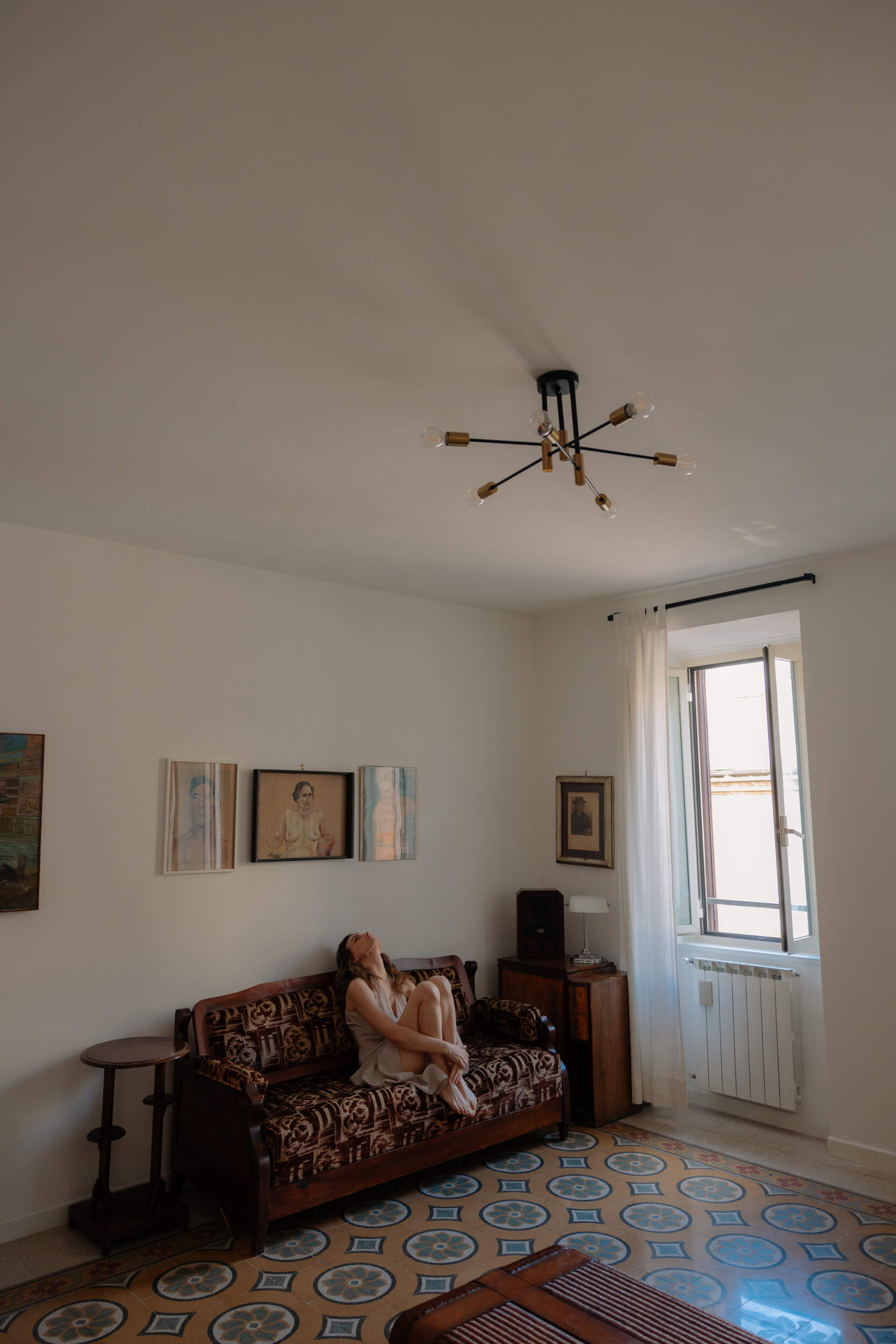
Which elements of Gianna’s world, personality, and deep motivations did you find most stimulating to explore?
Her sense of integrity, which she maintained despite the setback during her years of crisis. I realize how difficult it is, for me as an actress but for anyone, to impose one’s personality without compromising. However, if you stay authentic, you live well with everything around you: authenticity is always appreciated. The truth Gianna expresses and emanates through her lyrics and personally is priceless: there’s nothing more beautiful than dealing with a person who’s so astonishingly true.
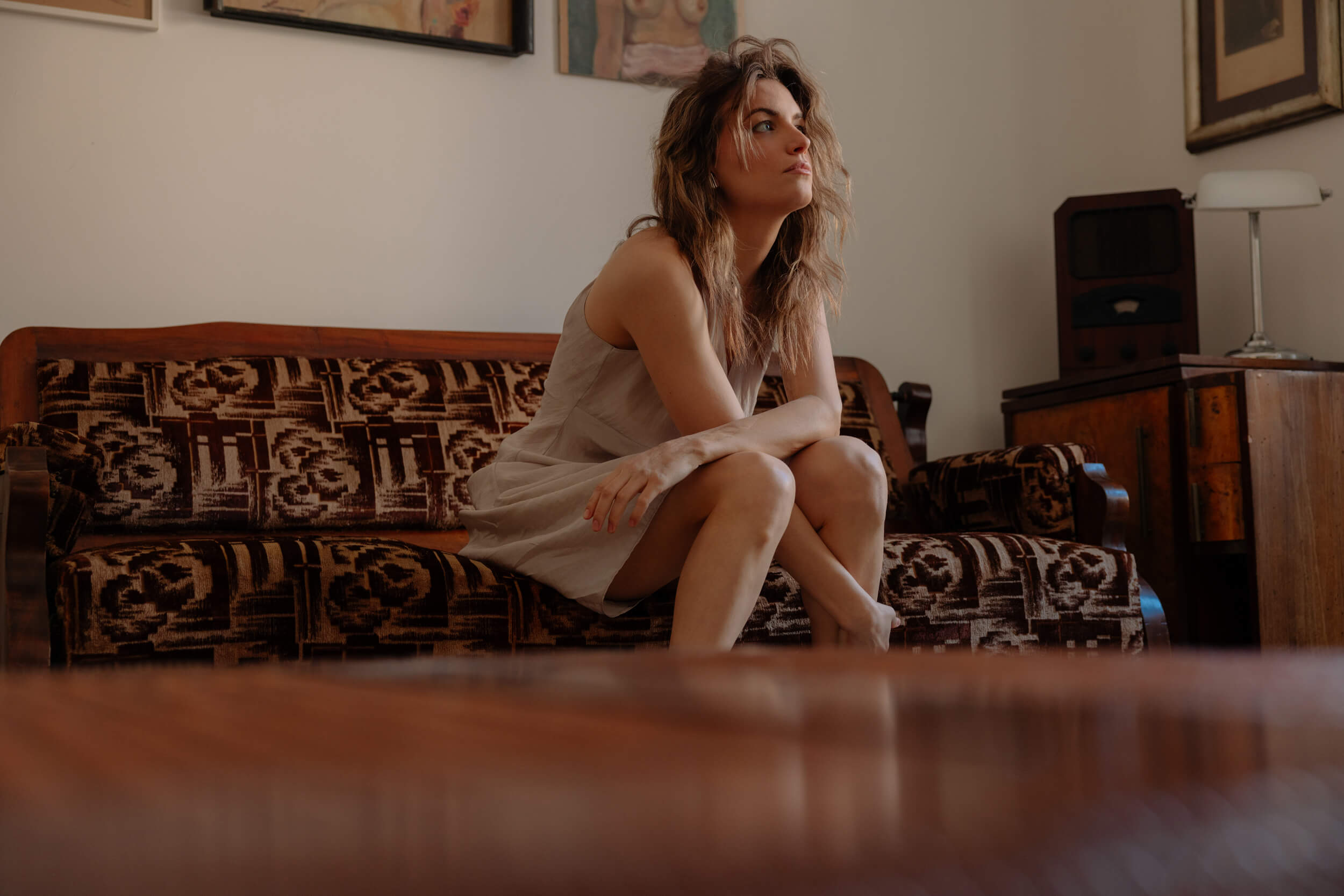
Gianna’s music profoundly impacts her life and the audience. How did you prepare for the musical performances in the film?
Years ago, I took singing lessons to “educate” my voice because I liked singing but was too shy. At first, my problem was that I didn’t manage my breath well, so with singing lessons, I learned to breathe better and express myself vocally, conveying emotions with the right sound. However, my goal wasn’t to become a singer; I simply enjoyed singing in the shower. Initially, I wasn’t supposed to sing for this film; I was to be dubbed by Gianna’s voice. But when I met her five months before filming began, she asked me to sing a bit in her home studio. I was embarrassed, so she said, “Sing the audition song, you’ve already sung that, right?” So, I sang it, and she pointed out where I was wrong with my breathing, explaining her technique. Gianna has a very particular breathing technique, as seen from watching her: a deep breath with a push starting from the pelvis. That’s why her voice is so powerful even without a microphone. That day, we practiced a lot; I tried singing following her advice, and she said, “Why don’t you sing yourself? You’re the same!” She gave me so much courage, always so optimistic. With the help of an excellent singing coach, Elisabetta Tulli, recommended by Luca Ward, I started recording songs and sending them to Gianna. We then went to record the pieces in Berlin with her sound engineer, who has fantastic microphones capturing all frequencies. In the end, in the film, my voice sometimes transforms into hers; there’s a nice mix.
This work, the contact with instruments, and learning a bit of piano brought me even closer to the character because Gianna is her music.
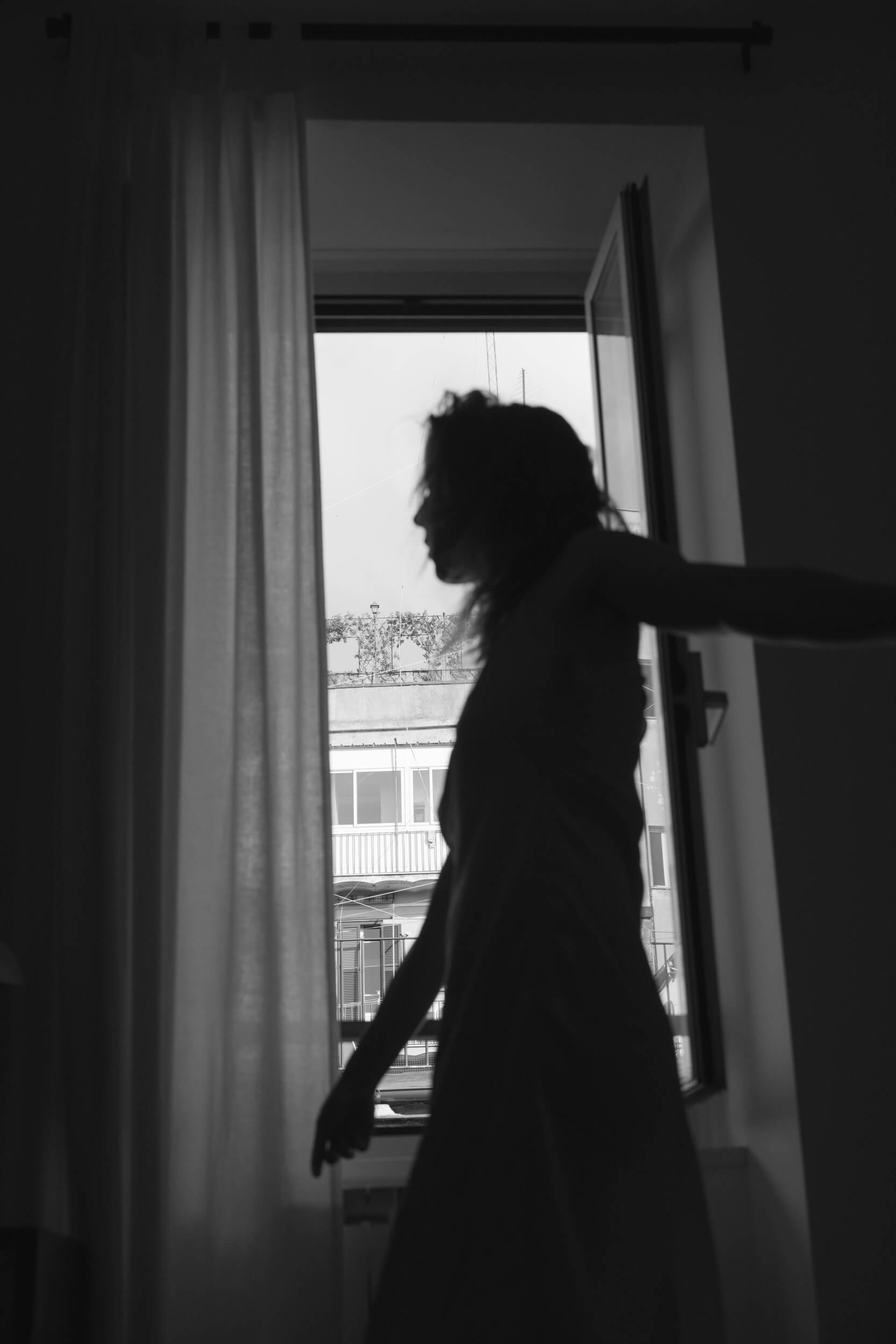
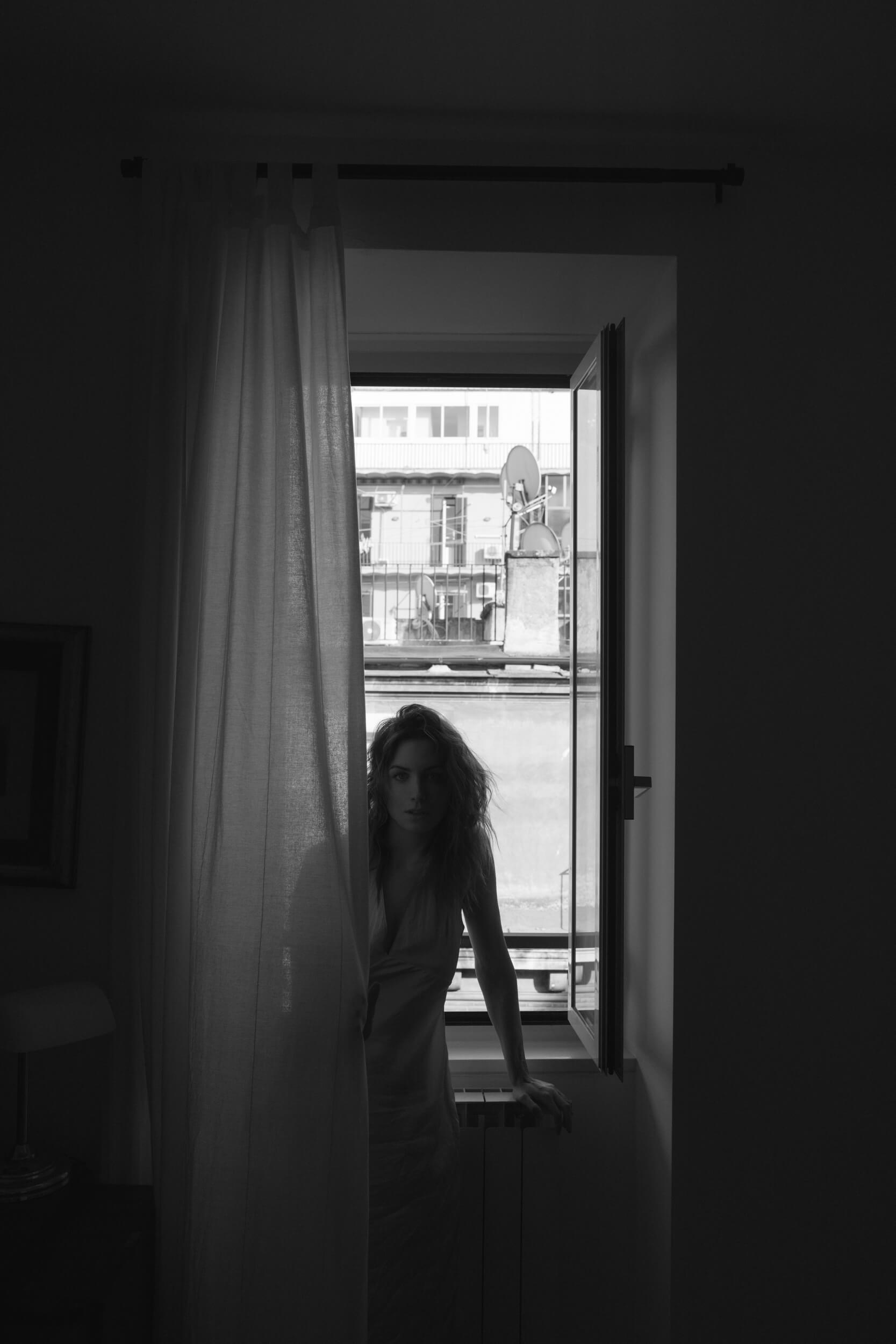
Did you interact with other people in her life during preparation for the role? How did they influence your interpretation?
Yes, I met Carla, her daughter… When I first saw Carla, it was really strange; I felt like crying. At the table, while she was talking, I had a lump in my throat thinking she is the person who has shared everything with Gianna and made everything possible; thanks to her, Gianna was saved. I looked at her and felt ashamed because I had spent months and months imagining her and falling in love with her. Meeting her in person was beautiful and emotional.
Gianna, as we said, has refused from the beginning to bend to the will, rules, dictatorship, and norms of the entertainment world, to remain authentic and true to her principles and personality. What do you think of this attitude, the desire to stand out, and the compromises?
This film made me change a lot from this point of view. Before, I lived in uncertainty, not knowing exactly how I should be. Of course, I never compromised to change my personality: rather, I’m too kind and get taken advantage of. However, I went through a crisis before this role because I had received a lot of rejections and was doing things I didn’t like, thinking it was necessary to get somewhere. I never changed my personality, but sometimes I accepted things that didn’t suit me. With this film, by recovering my childhood and doing psychological work, I rediscovered the real me. I realized that before, I was a bit too “how others liked”, but the real Letizia is another, the one I found again after this experience, the 13-year-old girl who watched Nuti’s films.
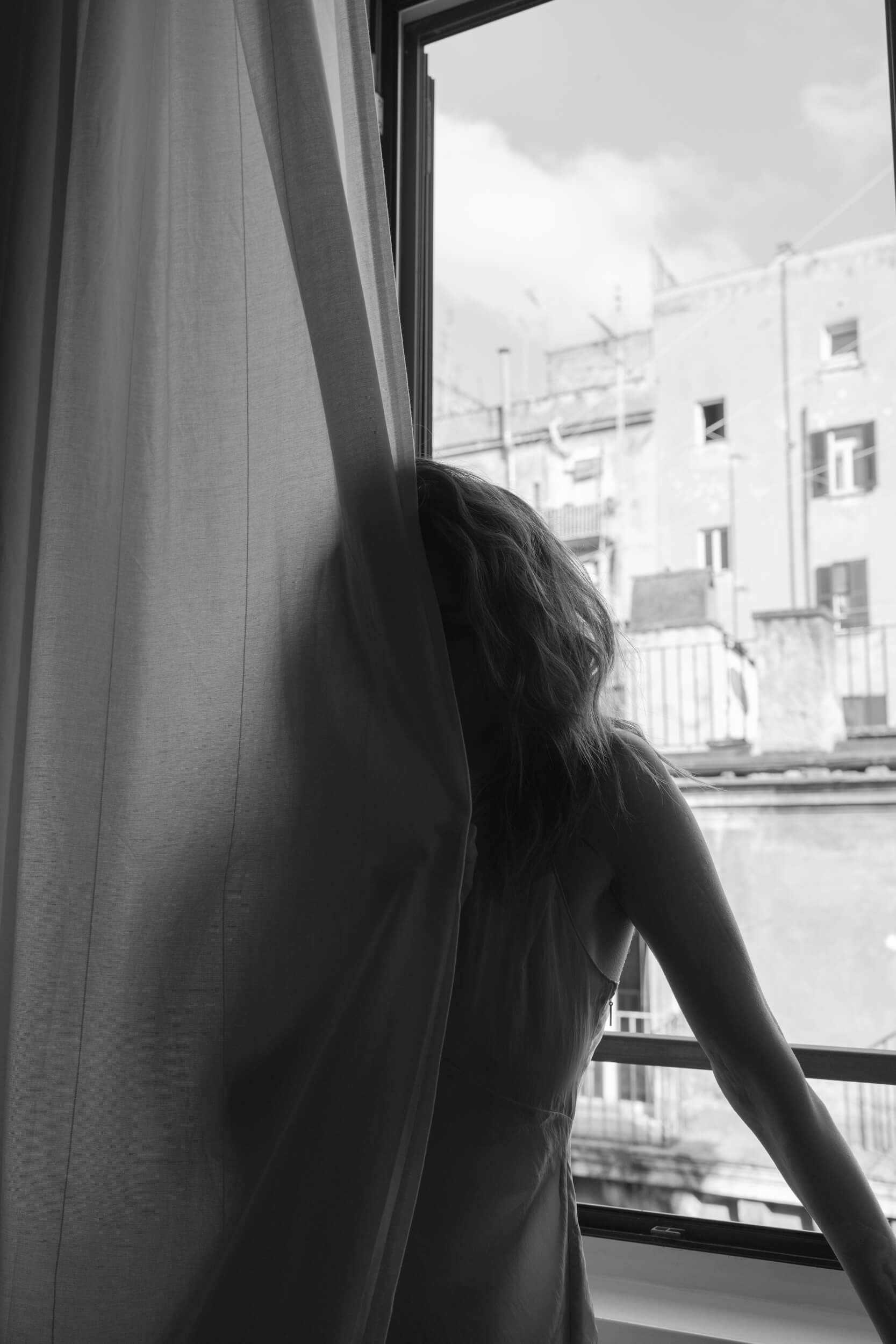
“With this film, by recovering my childhood and doing psychological work, I rediscovered the real me.”
What has Gianna left you with?
Gianna has left me with a sense of humanity and spontaneity that I now put into everything I do, with everyone I meet. She has taught me to approach things deeply because she is meticulous about her work, and seeing how she does it, being in close contact with her, I understood the immense work behind success. I understood that there is a lot of pain and effort because to do this job, you inevitably have to distance yourself from the people you love and isolate yourself.
I will try to emulate this attitude in my future work.
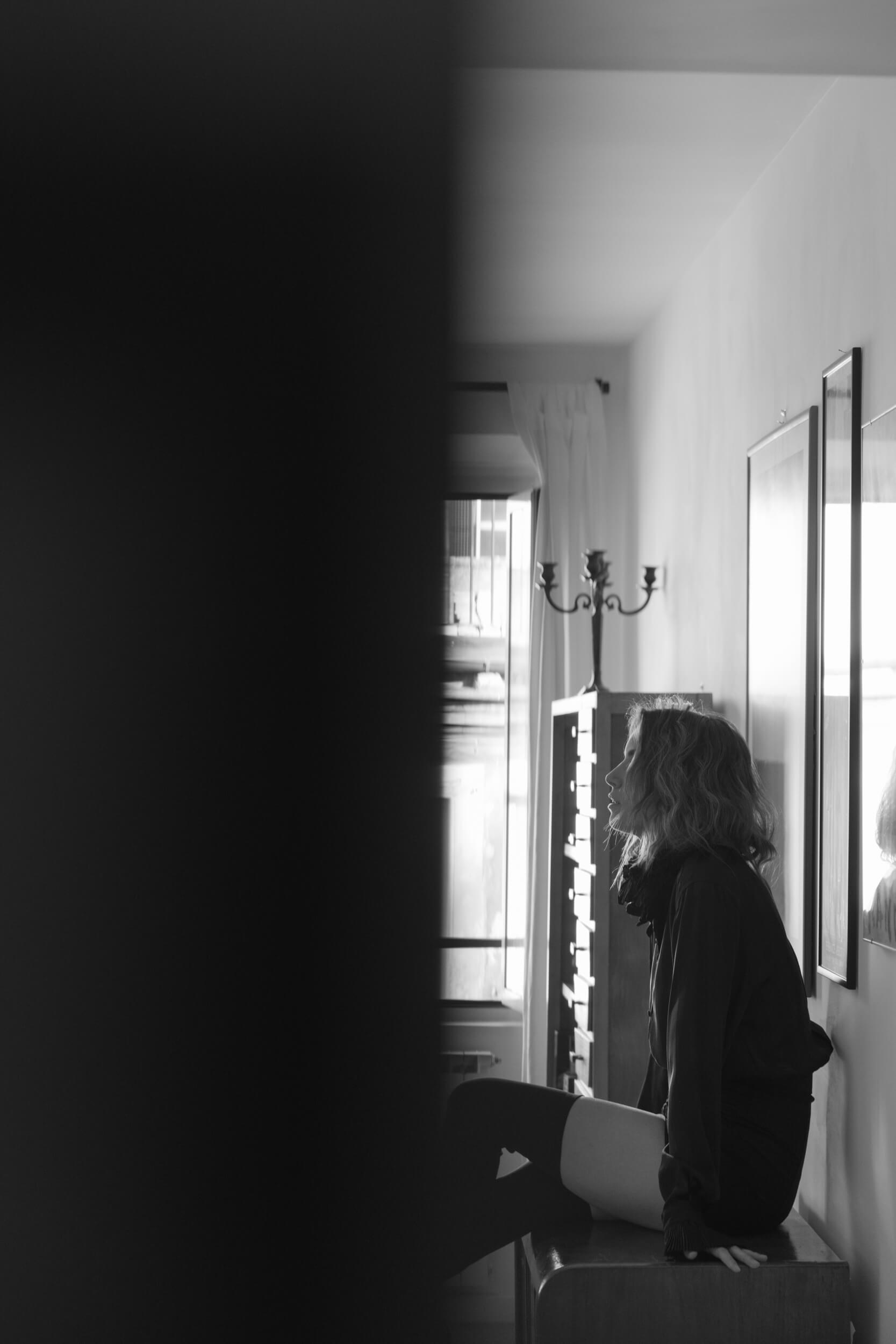
Is there an aspect of the acting process or life on set that is often underestimated or not recognized by the public, but that you consider fundamental or significant?
For those who are not part of it, it’s hard to imagine everything behind films. Cinema is an incredible machine; a film set is like Mars. Just think about all the people working on it, the nervousness on set, the tight deadlines, the money spent, the waiting… it’s never all roses and sunshine, it’s heavy work. For me, it’s never been a problem; I want to suffer [laughs], but people don’t know that’s how it works. Clearly, what the viewer sees is the sublimation of the work, but they don’t imagine what’s behind it. Think that ten days before filming, I broke out in stress-induced hives and lost my voice for a month!
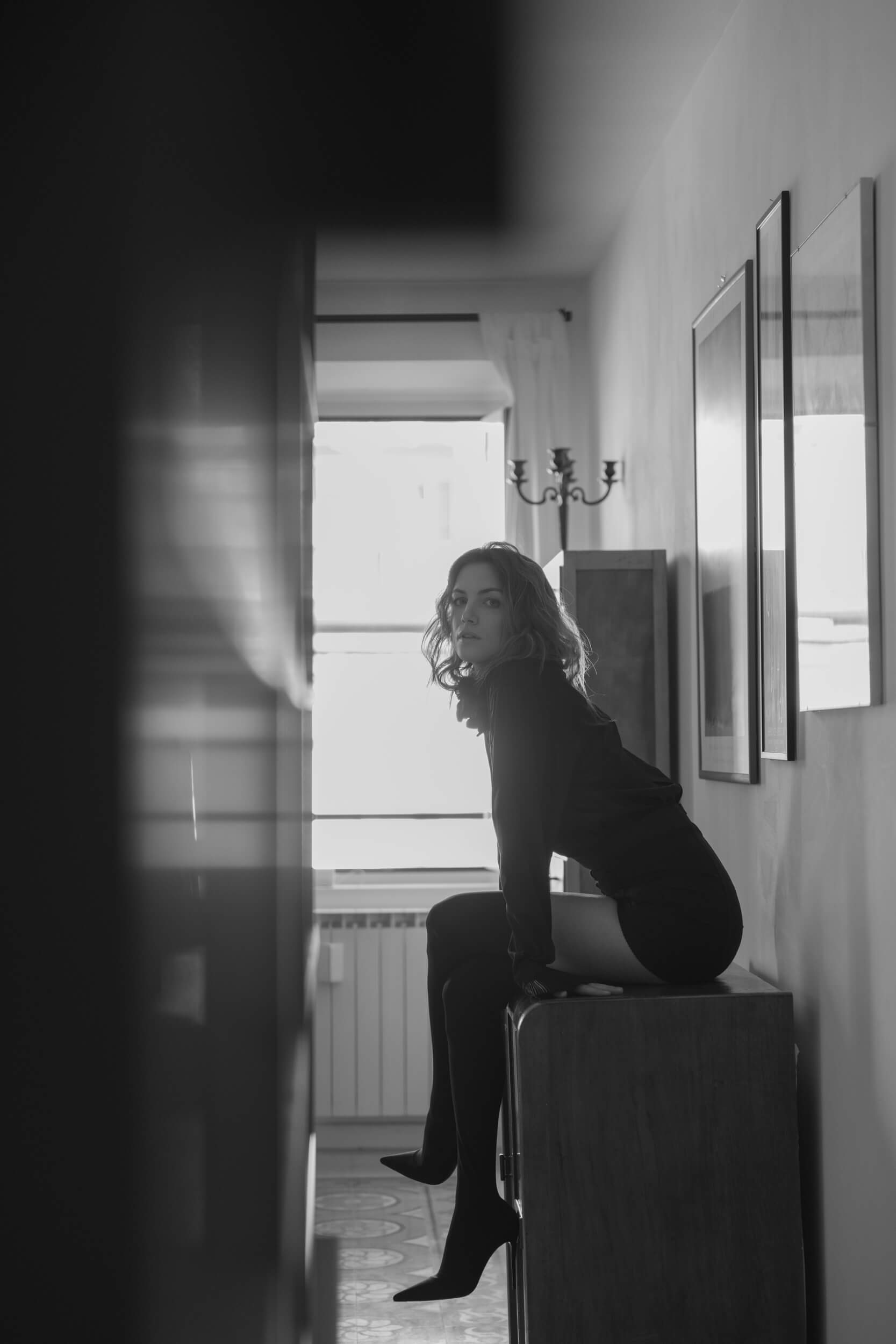
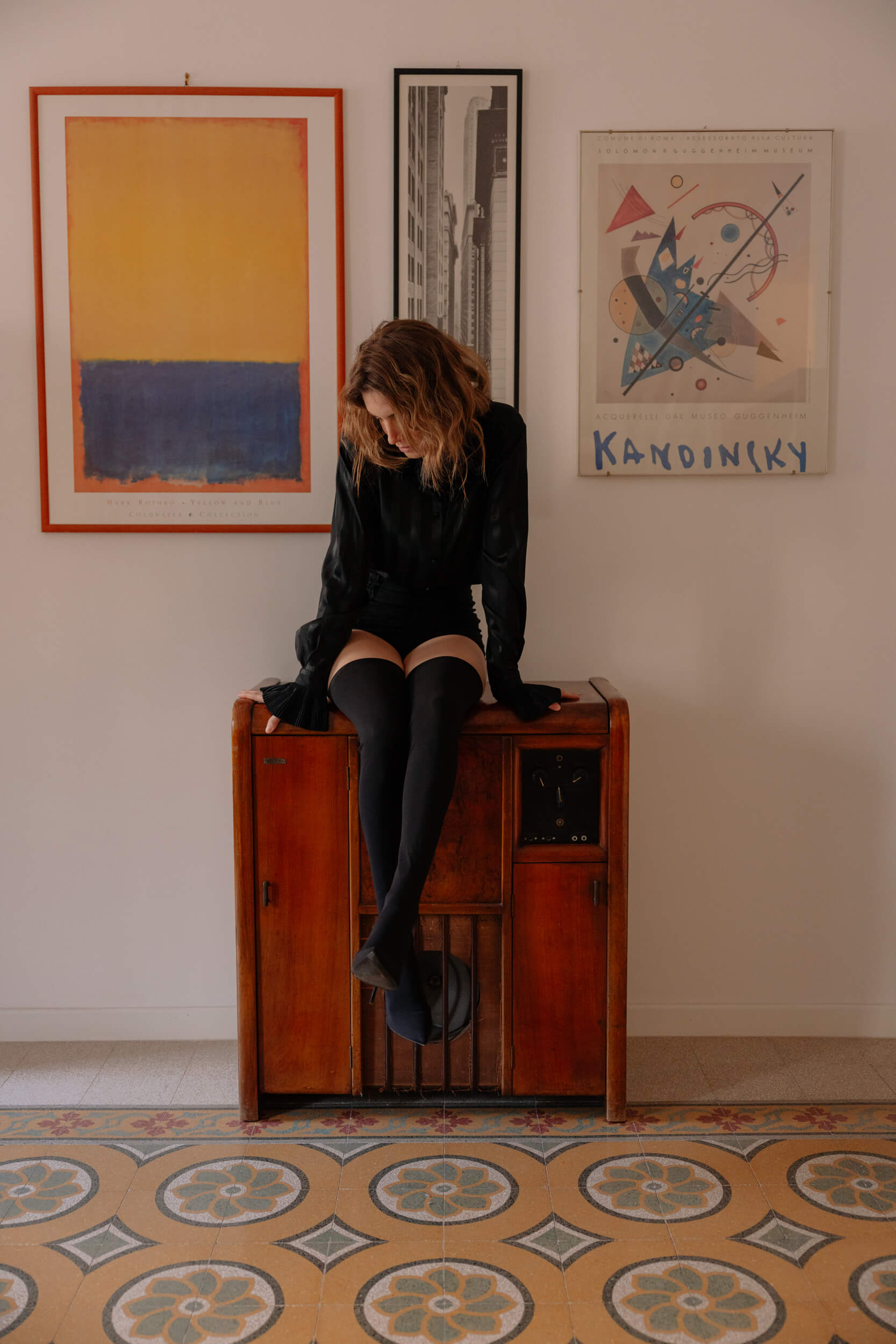
Do you have a routine or ritual you follow before starting to shoot a particularly demanding or emotional scene?
I prepare the scenes long before shooting, especially if they are emotionally charged. I find elements to attach to and bring in front of the camera through a mental mechanism that allows me to connect to the character’s emotions through a process of “retrieval”. For this film, I connected to the character’s thoughts and past, which, as we said, has many elements in common with mine!
Then, it is crucial for me to be in absolute silence before shooting. Many people listen to music, but I do it only if there are people talking around me, to try to isolate myself and concentrate.
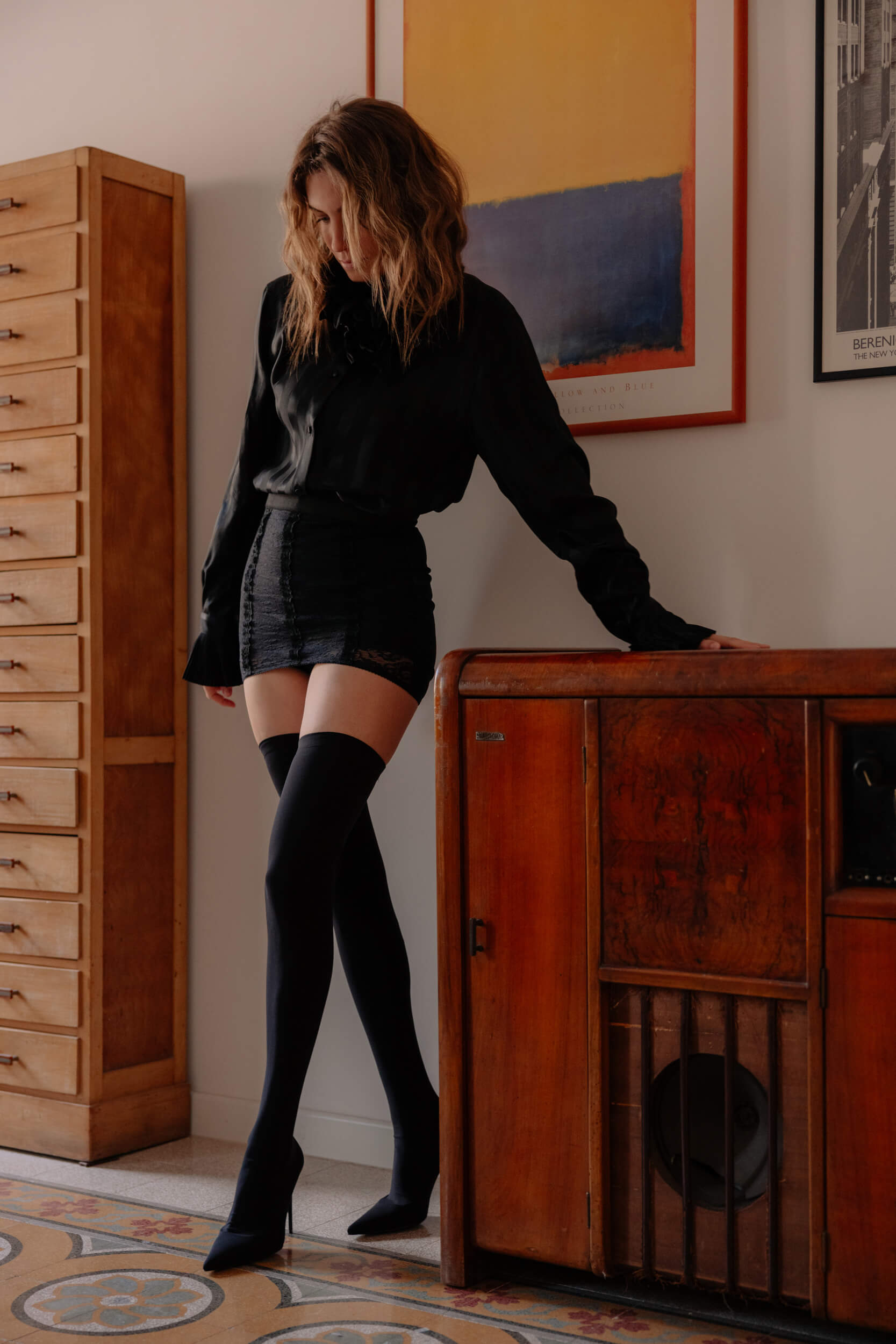
“I prepare the scenes long before shooting, especially if they are emotionally charged.”
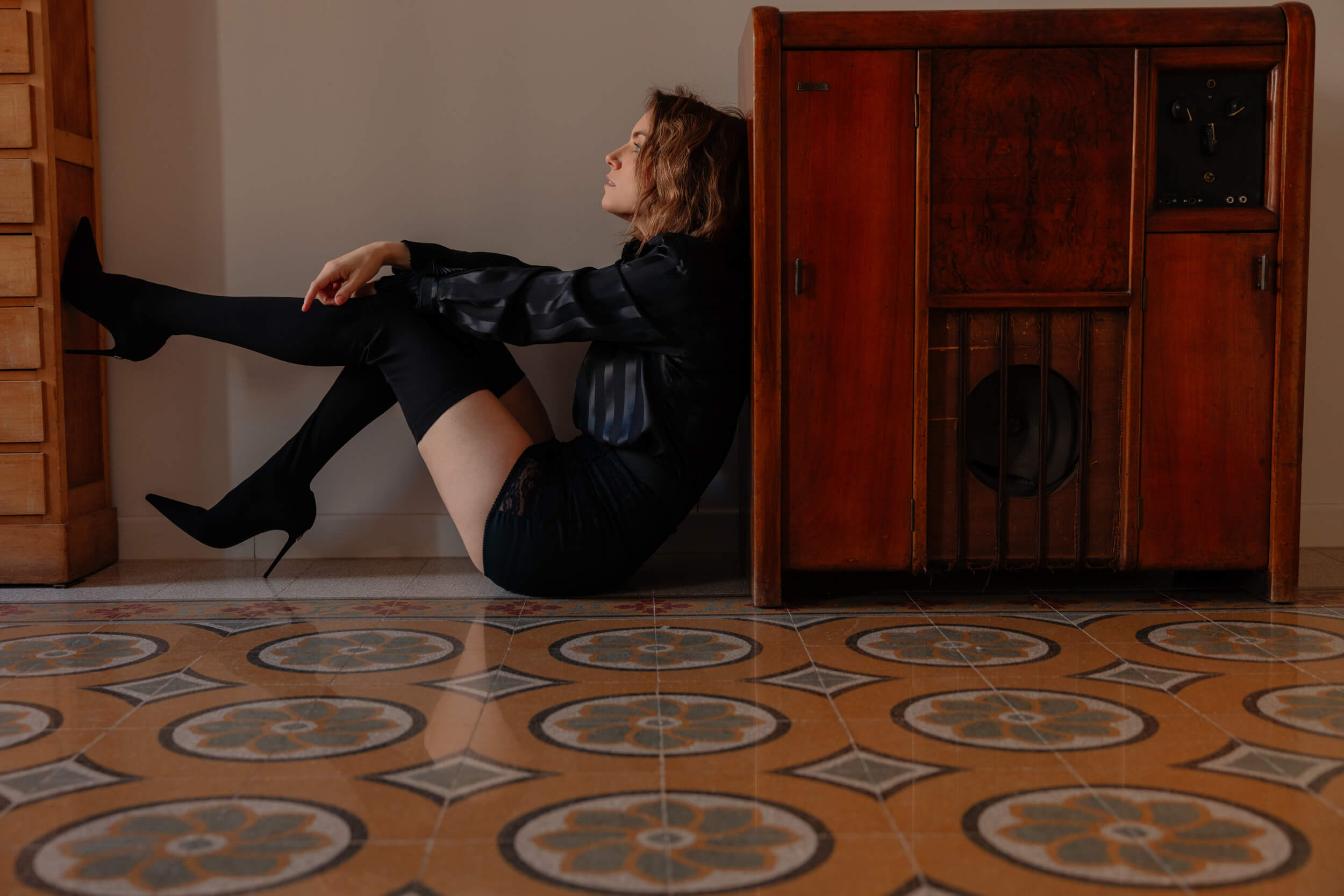
Your must-have on set?
I had a bracelet that I always had to carry with me, but I was afraid someone would steal it, so I was constantly anxious on set [laughs].
Also essential are supplements because I’m afraid of losing energy! On the set of “Sei nell’anima,” once, I took a mixture that also contained a lot of caffeine, and I had a terrible tachycardia, so from that moment, I decided to go easy on vitamins [laughs].
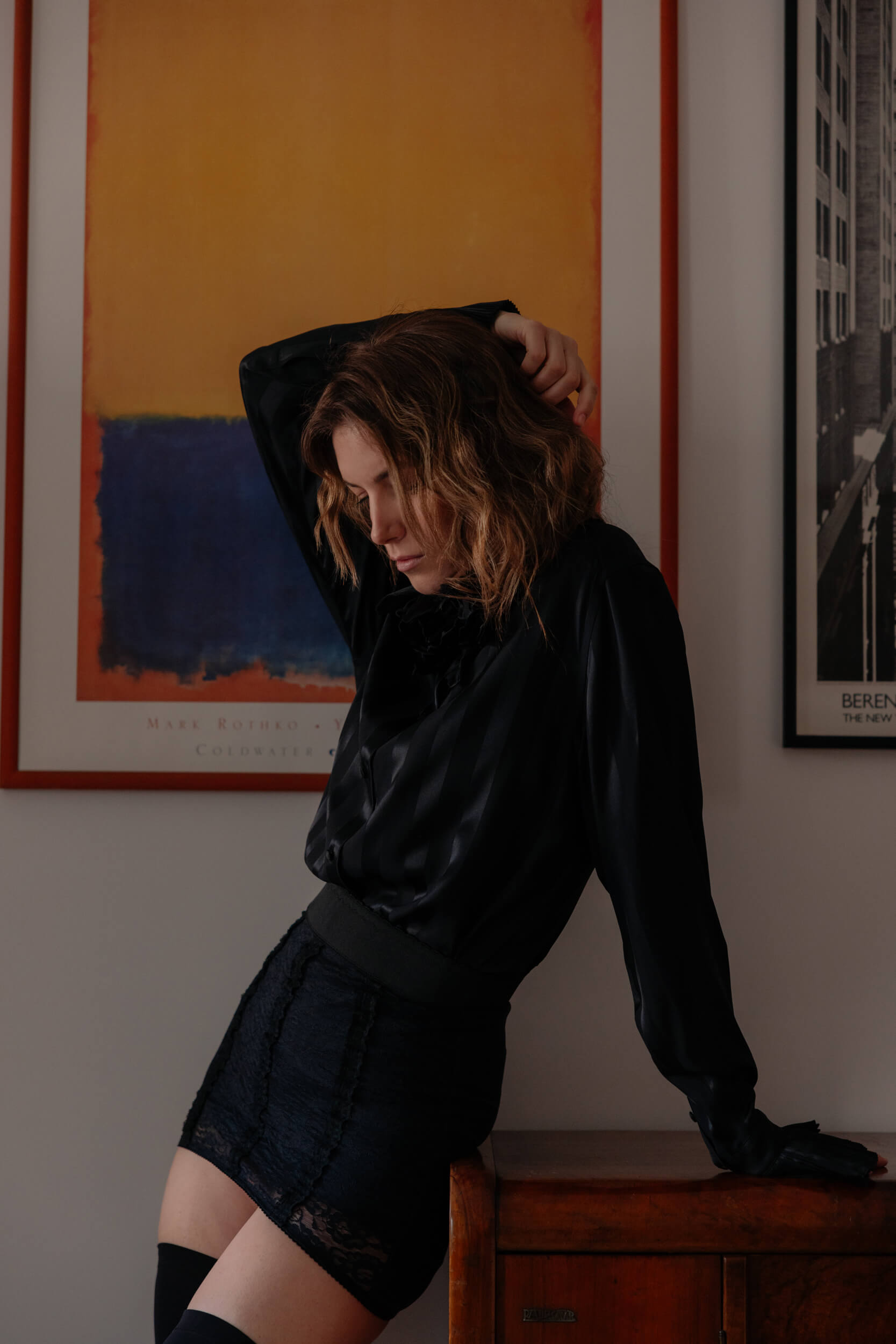
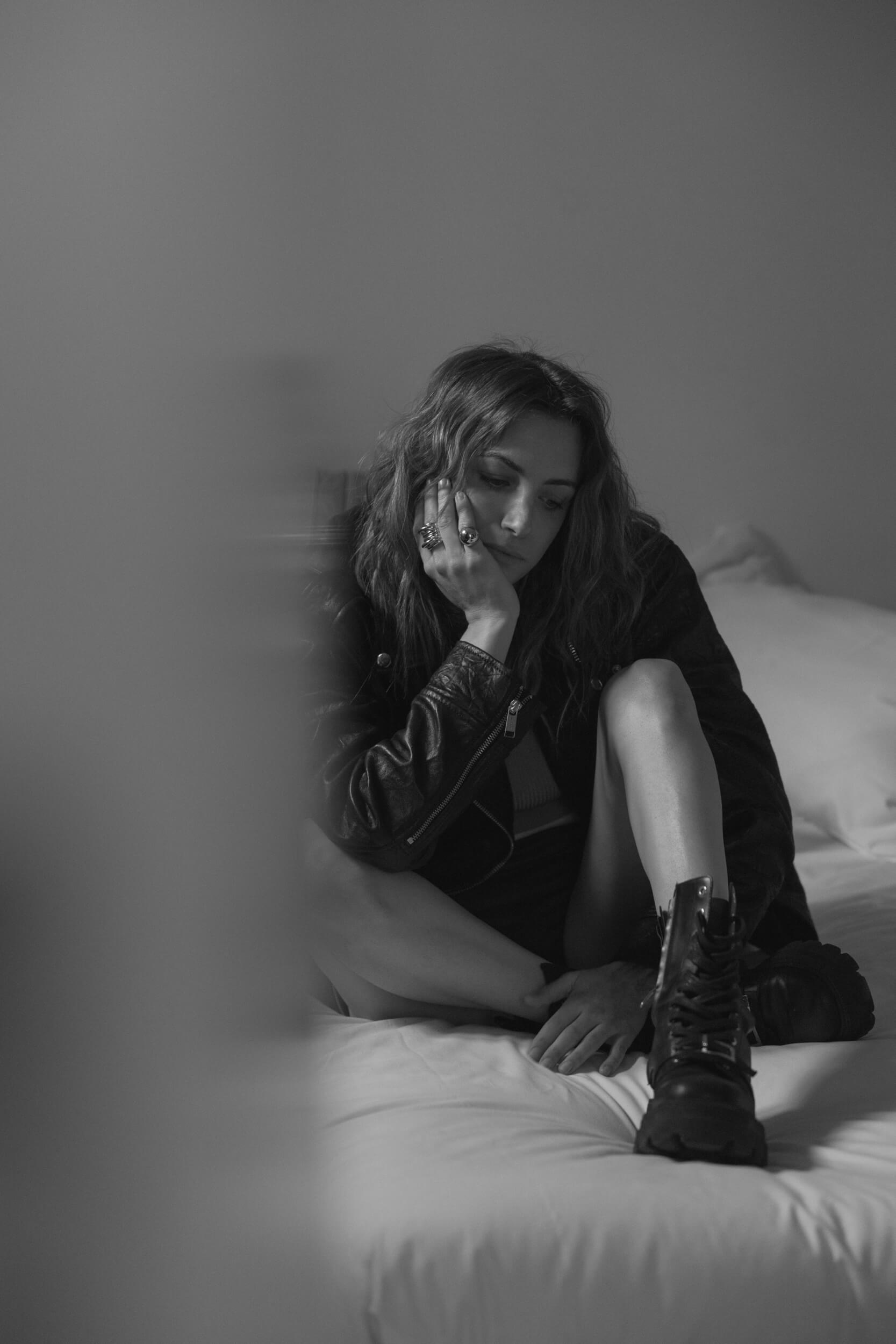
What is your biggest fear?
Not being appreciated as an actress. Before this film came out, I was very afraid that the truth and emotions I wanted to convey wouldn’t come through. It’s my first leading role, and I’m always very negative, but these days, receiving so many compliments and knowing that people like the film and my performance makes me happy and relieved.
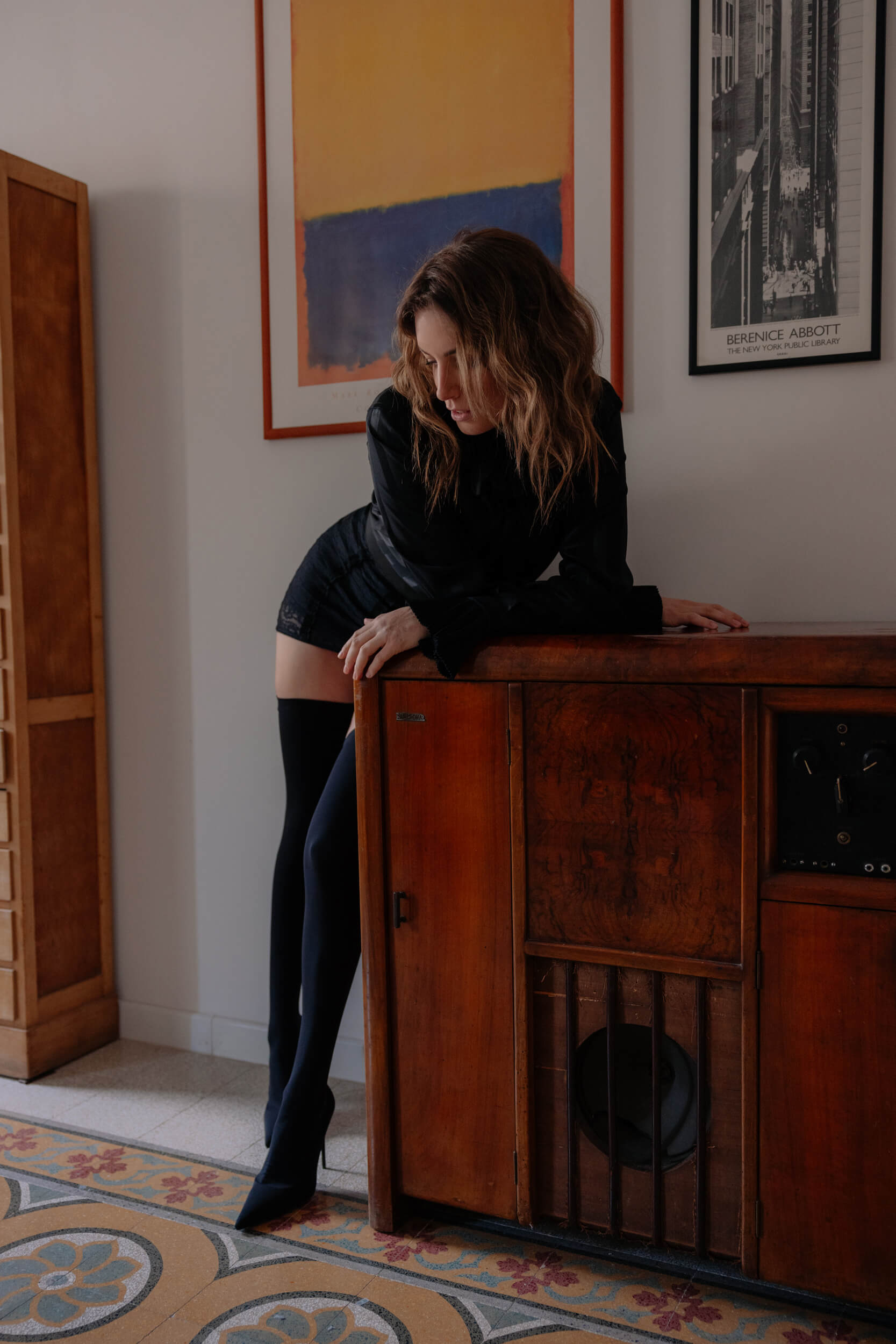
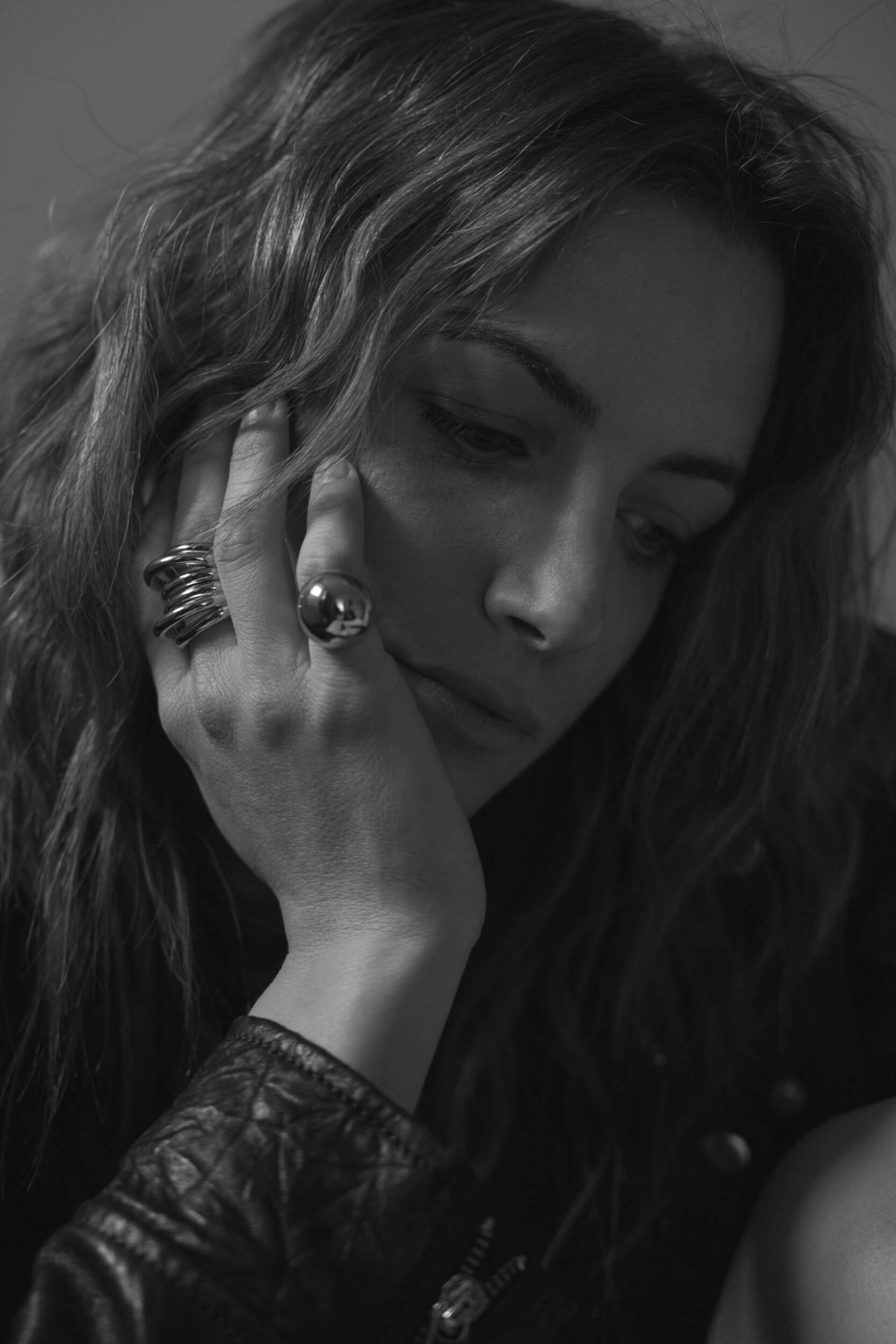
When do you feel most secure? And when do you feel most confident?
I’ve never thought about it…
I feel secure when I have control over what I’m doing, when I see and feel that I’m going in the right direction.
If I’m satisfied with my work because I can communicate what I want to convey to people, it’s the greatest satisfaction, and I feel confident.
Your biggest act of rebellion?
I ran away from home once; it was a mess. I hid from my parents because they absolutely didn’t accept that I wanted to act. I had a plan in my head, and if someone got in the way, I went crazy. I ran away to Rome when my parents didn’t want me to, even though it was heartbreaking because I’m super close to my family.
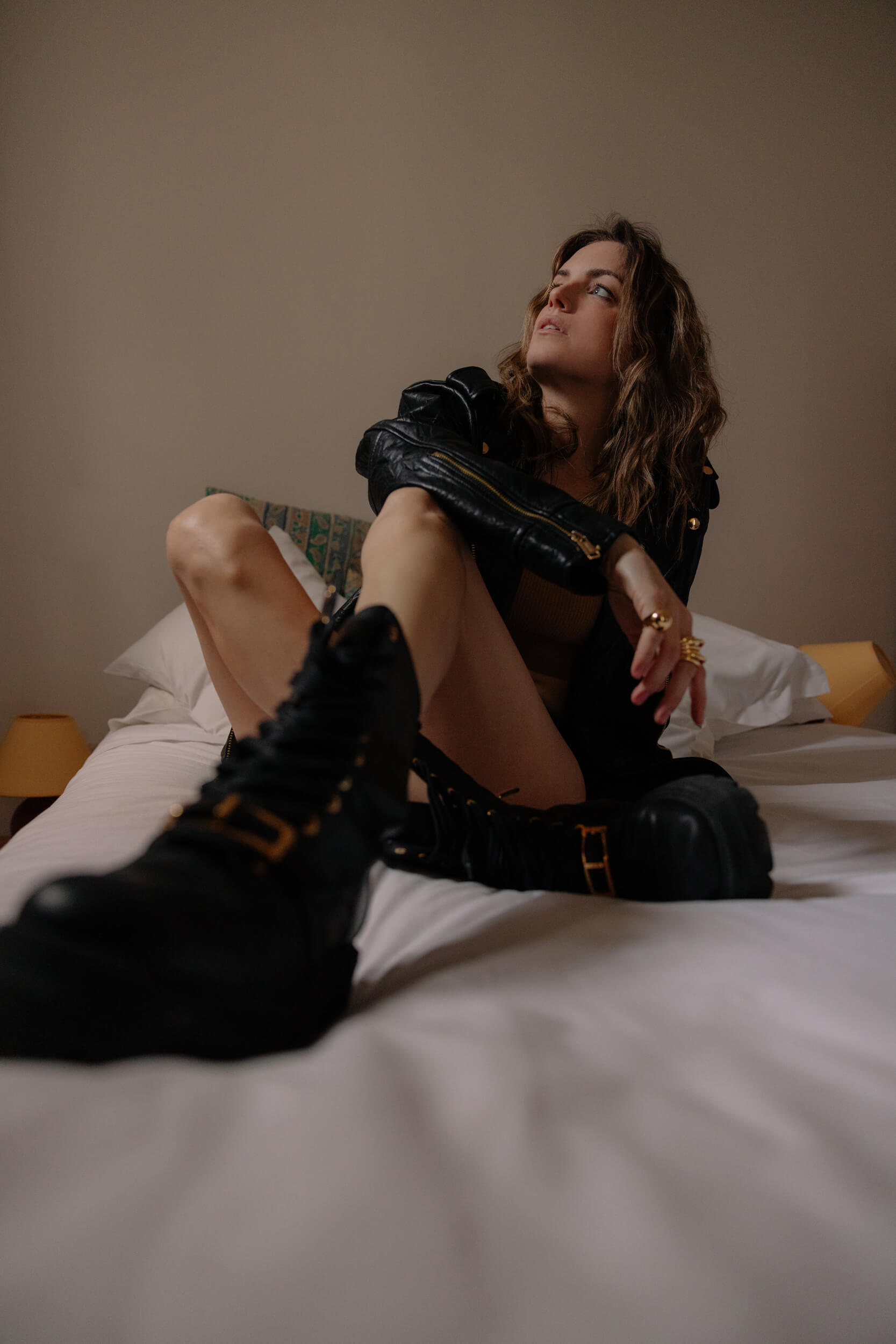
“when I see and feel that I’m going in the right direction”
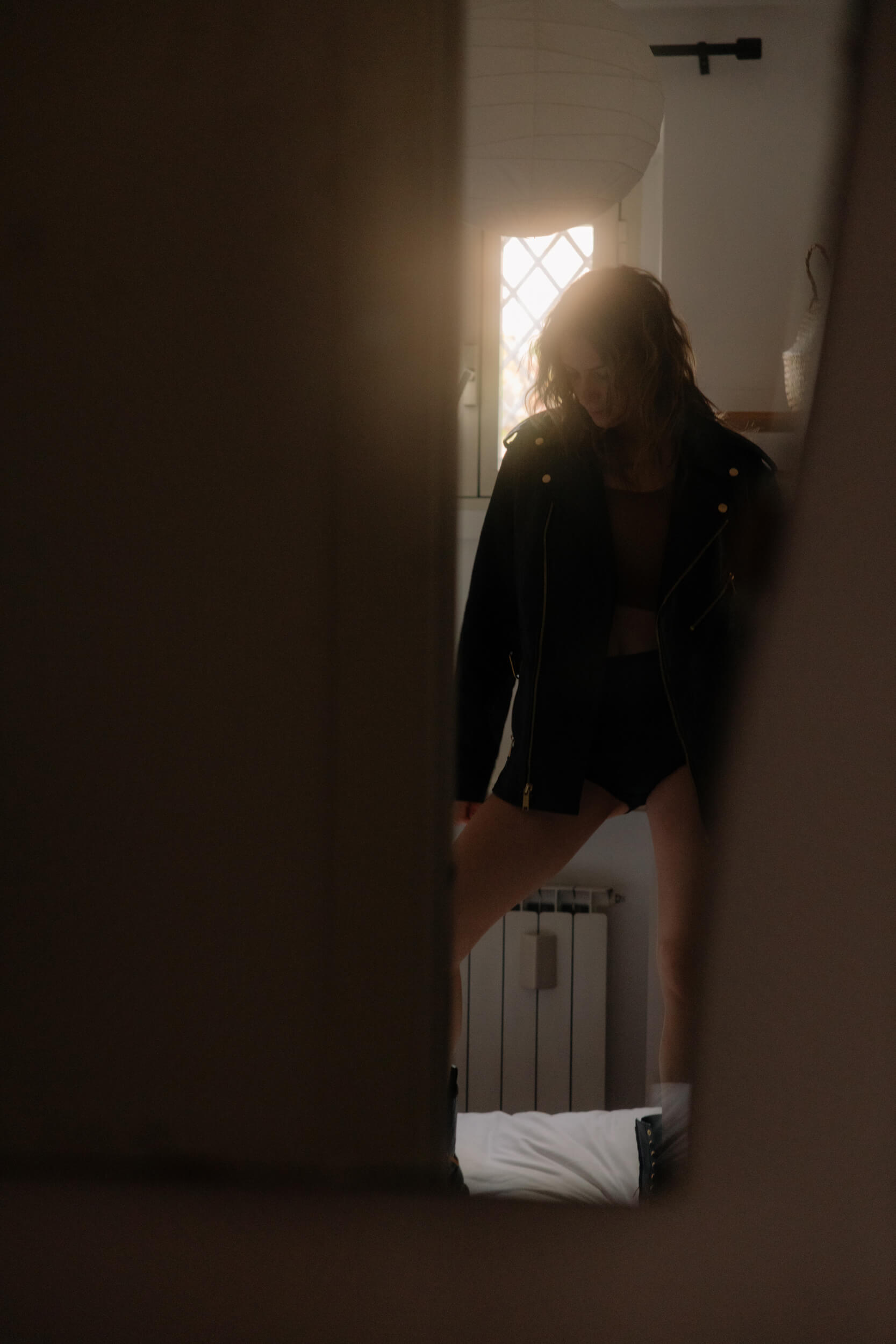
The current top 3 on your playlist?
I’ve always listened to Gianna a lot, even when I worked at my parents’ place; I played her albums on Spotify radio, and I listened to her as a kid too. “Meravigliosa creatura” was one of my main listens on my iPod when I was 13, and none of my friends wanted to listen to songs from my iPod because I had “old people’s” music [laughs]. At the moment, my top 3 includes: “Natural Woman” by Aretha Franklin, my favorite song, anything by Pino Daniele, and Janis Joplin, whom Gianna also loves.
The song that describes this precise moment in your life?
Lately, I’ve been obsessed with a song by Zucchero, “Come il sole all’improvviso”. I’d say that one.
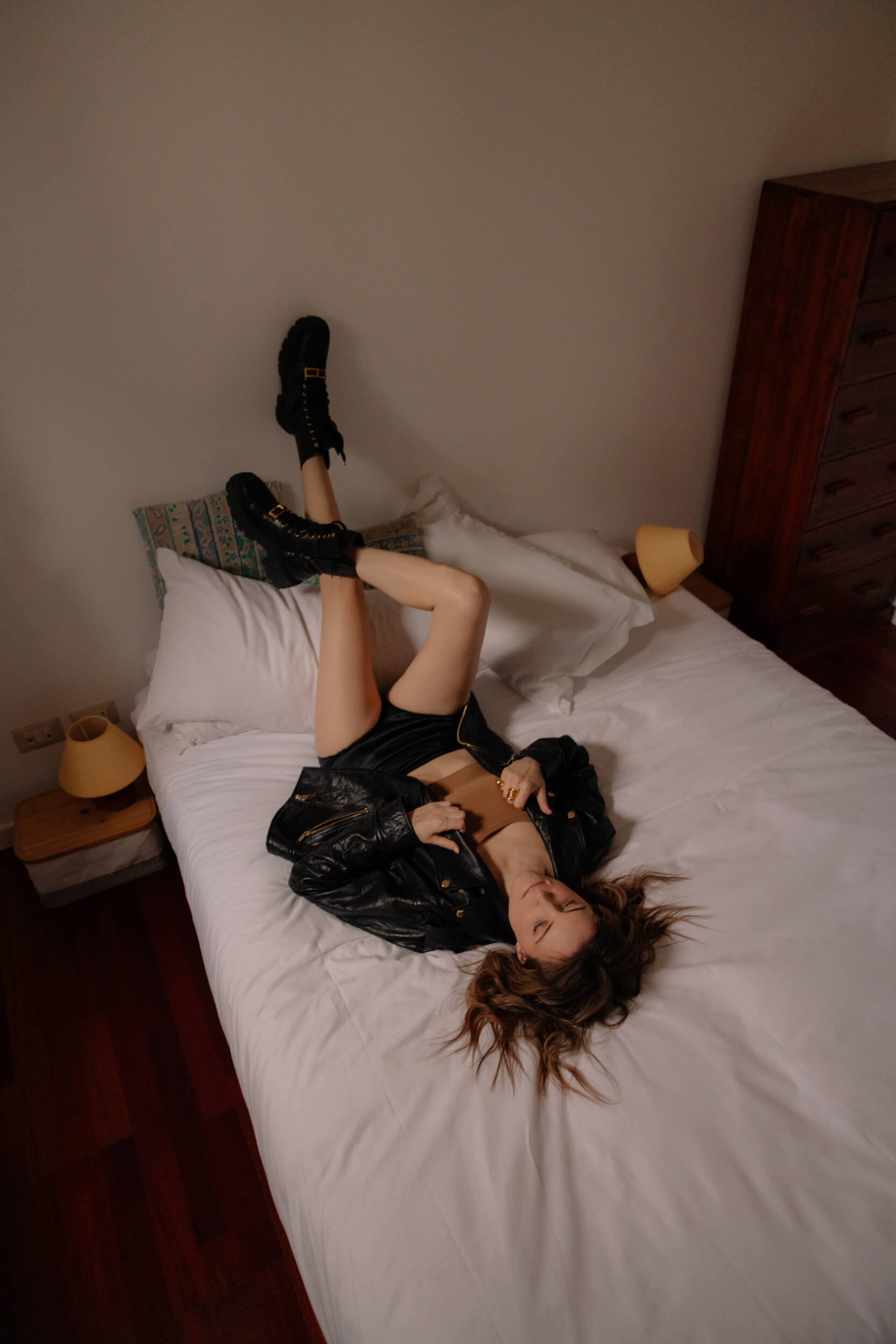
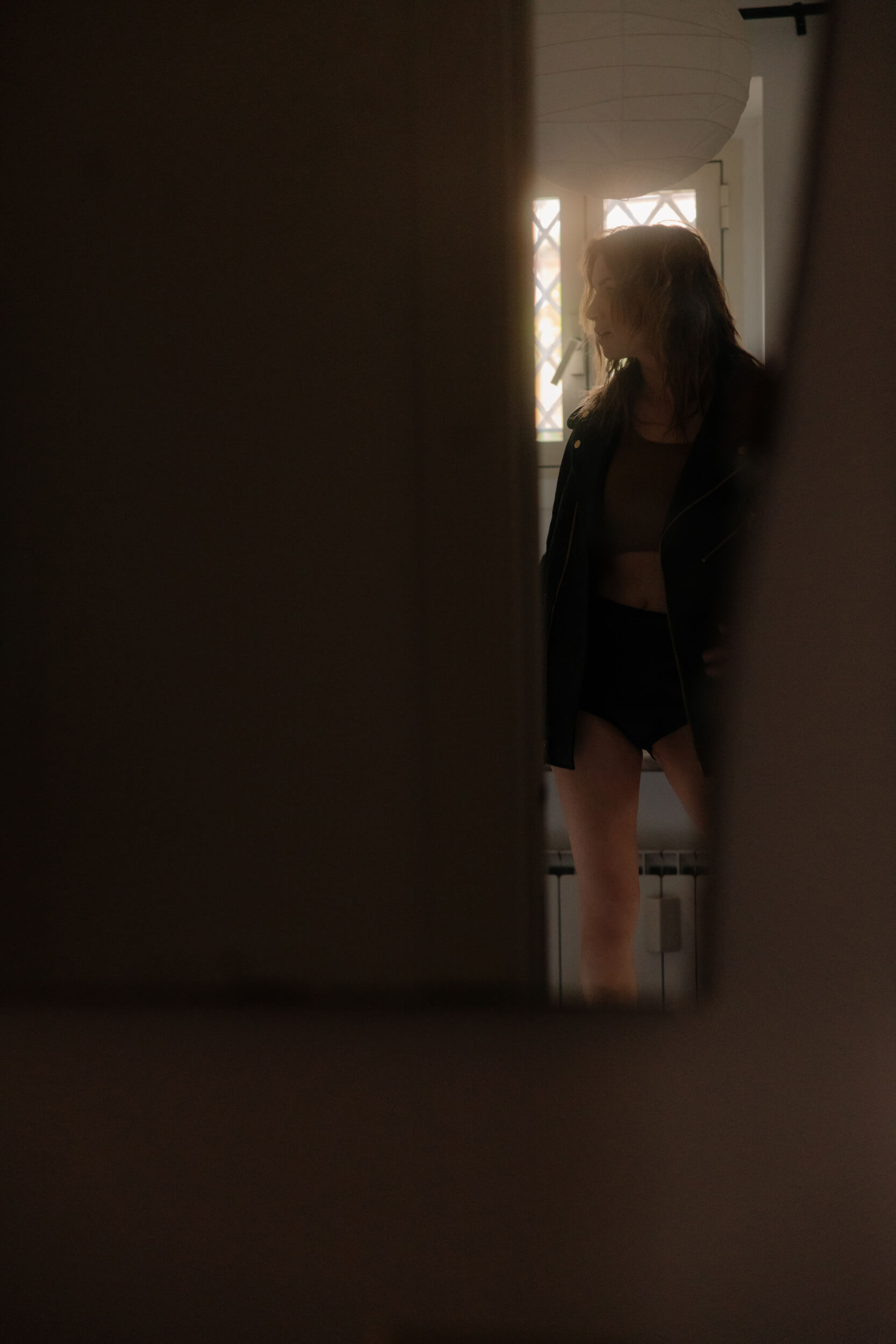
In a scene from the film, Gianna is asked, “What is happiness to you?” She answers, “A room with a piano, a glass of wine, and a motorcycle parked outside…” What would your answer be?
The same way! A room somewhere and a film to prepare. With wine, because it helps [laughs].
What does it mean to you to feel comfortable in your own skin?
For me, it means feeling a sense of freedom, accepting yourself with your strengths and weaknesses, feeling resolved. It’s a very difficult goal to achieve, but accepting your way of being is essential because it’s useless to try to conform to others. The key, in my opinion, is uniqueness.
What is your happy place?
The train [laughs].
Actually, for now, I don’t have a happy place yet, but my goal is to find one within 10 years, to create a place where I can build a family, stability, and find a sense of peace that keeps me grounded in one spot. Then, who knows, maybe I’ll never have it; maybe I need to be in multiple places, not just one! We’ll see.
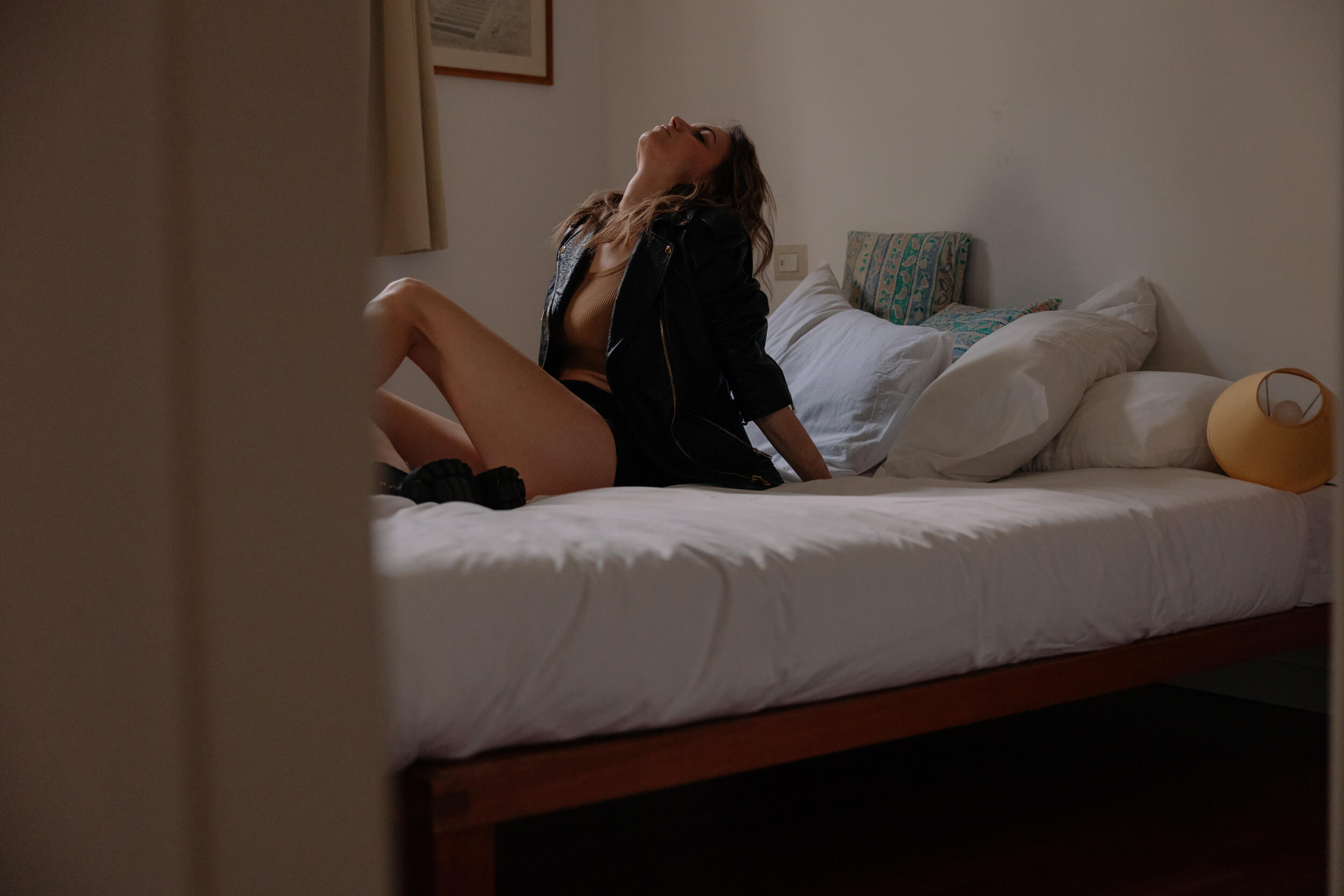
Photos & Video by Johnny Carrano.
Makeup & Hair by Micaela Ingrassia.
Styling by Sara Castelli Gattinara.
Assistant styling Ginevra Cipolloni.
Thanks to Other srl.
LOOK 1
Dress: Calvin Klein
Earring: Giulia Dominici
LOOK 2
Total Look: Dolce&Gabbana
LOOK 3
Jacket and Pants: Michael Kors
Shoes: Sergio Rossi
Rings: Federica Tosi

